See how Cvent can solve your biggest event challenges. Watch a 30-minute demo.


What Is Business Travel? Importance and Types

Business travel has always been an integral part of the corporate world. It provides opportunities to meet clients face-to-face, attend conferences and networking events, and explore new markets.
However, as much as business travel can be exciting, it also comes with its fair share of challenges. From flight delays and cancellations to tracking approvals and keeping spending in check, numerous obstacles can make business travel stressful and overwhelming.
In this blog, we will explore the challenges and solutions of business travel and provide insights on how businesses can optimize their policies and practices to make them more efficient, cost-effective, and enjoyable for everyone involved.
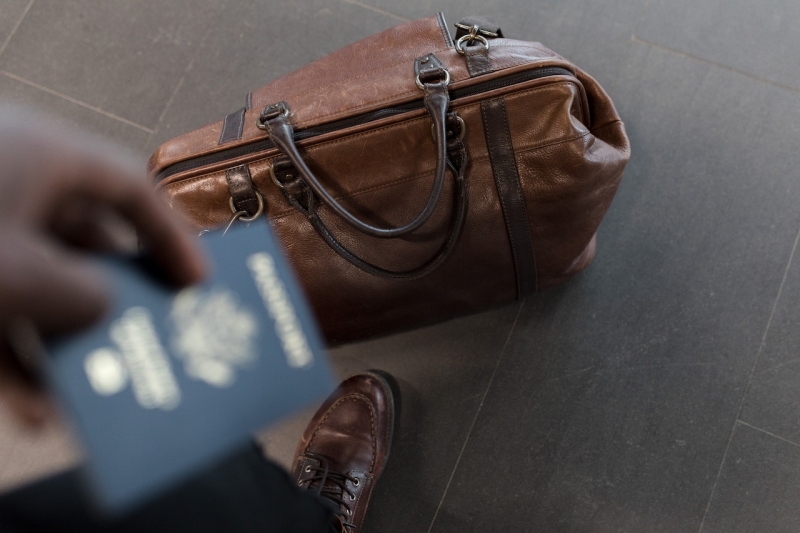
What is Business Travel?
Millions of professionals worldwide engage in business travel each year. Business travel is when you hit the road or take to the skies for work-related purposes. So, if you've ever traveled across state lines for a meeting or hopped on a plane for a conference, you've been on a business trip.
According to the Bureau of Transportation Statistics , Americans take over 400 million long-distance business trips yearly, accounting for roughly 16% of all long-distance travel.
What is the Importance of Business Travel?
It's clear that business travel is a significant part of many companies' operations, but what motivates them to send their employees on these journeys? There are several reasons why companies invest in business travel. Here are some of them:
1. Closing Deals
Business deals often involve significant negotiation, and in-person meetings can be critical to reaching an agreement. When people meet in person, they can build trust and establish personal connections that are difficult to achieve through virtual communication. As such, closing deals in person is a common reason for business travel.
2. Exploring New Markets
Companies looking to expand into new markets often send representatives to explore the conditions on the ground and conduct research. Visiting a new market can provide valuable insights into consumer behavior, local regulations, and cultural norms that can help companies tailor their products and services to a new audience.
3. Building Relationships
One of the primary advantages of business travel is its opportunity to build stronger relationships with clients, partners, and colleagues. While email, phone, and video conferencing are convenient, nothing beats face-to-face interactions regarding establishing trust and rapport.
You can pick up on nonverbal cues during in-person meetings and establish a more personal connection. It can lead to a deeper understanding of the other person's needs and goals, which can ultimately help you provide better service or products. Additionally, in-person meetings can help address any concerns or issues more quickly and efficiently, preventing them from becoming more significant problems down the line.
4. Networking
Attending industry events, trade shows, and conferences can provide networking opportunities, learning about new trends, and meeting potential clients and partners.
Networking can be invaluable for building relationships, finding new clients or partners, and staying up-to-date with industry best practices. For example, attending a trade show can provide opportunities to showcase your products or services, meet potential clients, and learn about the latest market trends.
5. Competitive Advantage
Companies prioritizing business travel and investing in face-to-face meetings with clients and partners can gain a competitive advantage over those relying solely on digital communication. By meeting with clients and partners in person, companies can establish more personal connections and build trust, leading to more business opportunities and revenue.
Here's a business travel checklist to make business travel for your employees less stressful.

Different Types of Business Travel
Business travel can take many forms, depending on the purpose of the trip and the activities involved. Here are some of the most common types of business travel:
- Event and Conference Travel: Companies often send employees to corporate events and conferences where attendees can learn and network with peers, potential clients, and service providers.
- Training and Education: Companies may send employees to conferences and workshops to learn about trends and best practices in their functional areas. These events can provide valuable opportunities for professional development and networking, helping employees stay up-to-date on the latest industry developments and build relationships with others in their field.
- Internal Meetings and Visiting Offices: National and multinational companies may need to send employees and leadership to other offices to discuss specific projects and business strategies or to build a more integrated organizational culture.
- Company Retreats: Some companies hold retreats annually or multiple times yearly to help teams grow stronger and build company culture through shared activities.
- Client Meetings: Maintaining solid relationships with existing clients is crucial for many businesses. Account managers and others may regularly visit their most prominent clients to check in on them, take them out for a meal or drink, and generally show gratitude for their business. These visits can strengthen relationships and potentially lead to additional business.
- Trade Fairs: Many organizations attend trade shows and expos to display their products and services and connect with potential clients. Attending these events can effectively generate leads and build relationships with potential customers, especially in industries where face-to-face interactions are critical.
- Transfers and Offshore Work: Long-term transfers involve relocating employees to a different city or country for a certain period, usually to work on a specific project or set up a new function or business process.
- Transient Travel: Business transient travelers typically refer to individuals who frequently travel for short periods, often for a business meeting or work-related. These travelers usually stay in hotels or temporary accommodations and frequently move between locations for work or other activities.
- Bleisure Travel: This hybrid travel style combines business and leisure travel, allowing employees to extend their business trips to leave time for sightseeing and relaxation. Bleisure travel can benefit employers and employees, encouraging employees to volunteer for business trips more often and providing a relaxing break.
Top Challenges To Manage Business Travel
As many businesses need help managing company travel, several issues affect day-to-day operations. These include:
1. Managing Large Numbers of Requests
When managing large numbers of travel requests, keeping track of all the information and ensuring that requests are processed efficiently can be challenging. It can result in delays and frustration for employees waiting for travel approvals or information.
For example, imagine a small company with just one finance person responsible for managing all travel requests. They receive requests from various team members in different formats—email, Slack messages, and in-person visits. It can lead to confusion and delays in processing the requests and distract the finance person from other essential tasks.
2. Tracking Approvals
It's a massive headache if your company's travel approvals are manually emailed. Tracking travel approvals can be time-consuming and prone to errors. It can result in missed approvals, delayed travel, and frustration for employees waiting for approval.
Imagine a team member submits a travel request, and the finance person then sends an email to the manager for approval. If the manager is busy or forgets to respond, the request may be delayed or even missed altogether, causing frustration for the employee who is scheduled to travel.
3. Keeping Spending in Check
Managing travel costs can be difficult, especially when employees book trips independently or through different channels. It can result in overspending and frustration for finance teams who aim to keep costs under control.
For example, imagine a company where employees book travel through different channels. Some employees book expensive hotels and flights, while others find cheaper options on discount travel websites. It can lead to inconsistency in travel costs and make it difficult for the finance team to manage and budget travel expenses.
4. Being Flexible
Flexible travel policies can result in consistency, especially when balancing cost control with employee satisfaction. It can result in frustration for both employees and finance teams.
For example, a business with restrictive travel policies can limit employees to specific airlines, hotels, and routes. It may help control costs, restrict employee options, and make travel less enjoyable. On the other hand, if policies are flexible, employees may book expensive options outside the budget.
5. Reducing Errors
Reducing errors in travel management can be challenging, but it is essential to ensure accurate tracking of expenses and approvals. This can help prevent delays and frustration for employees and finance teams.

How Companies Can Manage Business Travel
Companies must make the process straightforward to ensure that team members comply with travel policies. If the process is simple, team members will find ways to circumvent the rules, and compliance will improve. The following are some common pitfalls to avoid:
- Too many rules: Too many, incredibly confusing or contradictory, can be overwhelming and frustrating for team members. It can lead to non-compliance or errors.
- A high number of touches: Too many touchpoints, like requiring additional emails to managers for approval, can slow down the process and make it difficult.
- Lots of manual steps: Requiring team members to file printed documents and receipts can be time-consuming and create opportunities for errors.
- Unclear processes: If team members are unsure of the steps or rules they must follow, they may become frustrated and disengage from the process.
To ensure compliance and simplify the process, use a corporate travel management system that walks employees through each step. By automating the process and making it easy and intuitive, team members are more likely to follow the rules and comply with company policies.
What is a Business Travel Solution?
A travel management system is a software platform that helps companies manage their employees' travel-related activities and expenses. These systems can be purpose-built tools from third parties or developed in-house by large companies. However, building a travel management system from scratch doesn't make sense with the availability of corporate travel management tools out of the box for a relatively low cost.
These systems aim to oversee, regulate, and coordinate a company's employees' travel activities and expenses. Previously, a company's office administrators or a dedicated travel manager would handle these tasks. However, with a travel management system, these manual tasks can be streamlined or automated, freeing up staff for more valuable work than monitoring others' travel plans.
A business travel solution typically offers features such as online booking, expense tracking, policy compliance, travel budgeting, and reporting. They make booking, managing, and tracking business travel much simpler and more efficient for companies and their employees.
As a business, it's essential to recognize the value of investing in business travel. There are numerous reasons why companies send their employees on these trips, including closing deals, exploring new markets, holding internal meetings, prospecting, educating, and visiting existing clients. These opportunities provide valuable experiences and insights to enhance your company's operations and bottom line.
However, managing business travel can present challenges, such as managing large requests, tracking approvals, and dealing with changes in travel plans. To address these challenges, it's crucial to have a straightforward and streamlined travel policy outlining the process for requesting, approving, and booking travel and any expense and reimbursement policies.
Another essential aspect of managing business travel is providing support and resources to employees while on the road. It includes ensuring they have the necessary technology and tools to stay connected and productive, providing guidance on safety and security, and offering access to travel support services in emergencies.
By recognizing the importance of business travel and implementing strategies to manage it effectively, your company can reap the benefits of enhanced collaboration, improved relationships with clients and partners, and increased opportunities for growth and success.
So let your employees stay connected, build relationships and enjoy their next business trip!

John Hunter
John is the Senior Manager of Event Cloud Content Marketing at Cvent. He has 11 years of experience writing about the meetings and events industry. John also has extensive copywriting experience across diverse industries, including broadcast television, retail advertising, associations, higher education, and corporate PR.

More Reading
19 engaging conference themes for 2024, congratulations to the 2024 cvent excellence awards finalists, 5 reasons agency partners can't miss cvent connect.
Subscribe to our newsletter
- Search Search Please fill out this field.
- Corporate Finance
Corporate Business Travel: Everything You Need to Know
:max_bytes(150000):strip_icc():format(webp)/Headshot-4c571aa3d8044192bcbd7647dd137cf1.jpg)
Katie Miller is a consumer financial services expert. She worked for almost two decades as an executive, leading multi-billion dollar mortgage, credit card, and savings portfolios with operations worldwide and a unique focus on the consumer. Her mortgage expertise was honed post-2008 crisis as she implemented the significant changes resulting from Dodd-Frank required regulations.
Corporate business travel involves the movement of individuals representing their organizations for work-related reasons. Whether it’s attending client meetings, industry conferences, or sealing business deals, this practice covers a range of activities essential for professional growth.
In the interconnected global business environment, where face-to-face connections matter, corporate business travel plays a central role in sustaining and expanding enterprises across borders. Businesses face challenges in optimizing this crucial element of their operations. Strategic considerations must be taken into account to use this element of business to its greatest potential.
Key Takeaways
- Corporate business travel can unlock new opportunities for business growth, offering the possibility of reaching new markets, connecting with a wider pool of prospects, or developing brand presence and reputation.
- Traveling for business has many benefits for individuals as well, providing them the chance to meet fellow employees, grow their career by participating in different opportunities, and network within the industry, not to mention experience new destinations.
- Business traveler safety and security are top priorities during corporate travel.
- To ensure that travel goes smoothly and stays within budget, companies should implement corporate travel policies and best practices for employees traveling on behalf of the company.
Importance of Corporate Business Travel
There are many business-related reasons to travel. It can encourage team building, promote learning, offer different perspectives, provide connection to a wider network, open up new markets, and drive sales. And whether or not the trip is for a specific purpose (such as a conference or a retreat), the benefits for employees and companies alike can extend beyond the stated intent of the trip, building confidence, cultural competency, relationships, and company reputation.
Many employees consider the opportunity to travel for work a desirable job perk, as it can offer the chance to venture somewhere that they may not ordinarily go, or to have a trip paid for by their company. And although expenses are associated with travel from a corporate perspective, they may be well worth the return on investment in terms of potential leads or sales—plus, many travel expenses are tax- deductible .
Types of Corporate Business Travel
Corporate travel can take many forms, including the chance for employees and executives to attend events, such as meetings, conferences, industry networking sessions, and fairs. Or a trip may take advantage of educational opportunities such as training sessions, seminars, and workshops. Retreats and guided trips can make for valuable team-building time in new contexts that unlock different perspectives and strengthen working relationships.
Businesses may send their employees to a different location to network, sell, teach, learn from, or generally connect with external contacts or internal employees in regional offices, or to act on behalf of the company in some way.
Additionally, from a client perspective, business travel may occur as a form of due diligence , ensuring that your vendors or suppliers are legitimate, legal, and compliant organizations—for example, traveling for regular audits to confirm that what you think is happening at your supplier organizations is actually happening.
Creating a Corporate Travel Policy
From a company perspective, travel can be a challenge to administer and manage . Costs can easily balloon out of control; travel logistics can be time-intensive to arrange; employees traveling on behalf of the company must be granted a great deal of trust; and like any form of travel, business travel can open up risks to safety, security, and health.
No matter the size of the business or the frequency or complexity of travel, a corporate travel policy can be a helpful tool for any company to set expectations for its employees, communicate guidelines and processes, keep expenses within budget, and streamline booking and logistics.
In creating a corporate travel policy, companies might consider the following for both domestic and international travel, as applicable:
- Purpose(s) of travel
- Which employees are eligible to travel
- Booking and expense approval processes
- Risks and liabilities of travel and how to manage them
- Expectations for employee behavior, including acceptable and secure uses of technology, personal vs. leisure time, communication, and entertainment while traveling
- Eligible expenses for employees while traveling, including per diem rates if applicable
- Determine if employees will be reimbursed for their expenses or given a corporate credit card to use
- Financial tracking, record-keeping, and reimbursement processes
- Acceptable booking practices and costs, including preferred agents or vendors
- Travel insurance
Of course, policies must also be communicated and enforced to ensure compliance and fairness. Including a travel policy as part of a corporate handbook or reviewing it in an onboarding or training module can be a good way to ensure that all employees receive and understand the information. Making it easily accessible for future reference on a shared drive or company portal will encourage employees to refer to it often.
Business travel managers estimate, on average, that spending on domestic and international corporate travel is at 77% and 74%, respectively, of where it was before the COVID-19 pandemic.
Setting a Corporate Travel Policy
:max_bytes(150000):strip_icc():format(webp)/GettyImages-14013409352-16063b976ed14512837ca0fe8bdc536d.jpg)
Corporate Business Travel Best Practices
There are many best practices that both employees and companies can keep in mind around corporate business travel to ensure that it is a successful experience. These encompass everything from administration and financing to employee behavior and well-being.
Booking Corporate Travel
Booking travel can be labor-intensive and time-consuming. To improve the booking process, save on costs, and streamline expense reporting, it can be helpful to designate preferred travel agencies, online platforms, vendors, and lodgings for employees and executives to book with. If the size of the company allows, it can also be helpful to hire an employee or team specifically to oversee and administer corporate travel, or designate this duty as part of an employee’s broader job description.
Managing Travel Expenses and Budgeting
There are many financial considerations when it comes to corporate business travel, and expenses and budgets must be carefully managed to keep costs under control. Many travel expenses are tax-deductible and can be written off, representing potentially significant savings for a company. Setting a budget and clear guidelines for employees about what can be an expense and what cannot is a must, as is creating and enforcing policies and procedures around tracking and reporting expenses.
Many corporate credit cards offer travel rewards and cost-saving opportunities for business travel, as do many other vendors and suppliers in the corporate travel industry. Businesses can take advantage of these to reduce inefficiencies and save on costs.
How to Manage Corporate Travel
:max_bytes(150000):strip_icc():format(webp)/GettyImages-1447025063-e5cd8140937b4bddb5a1c103997e498e.jpg)
Ensuring Traveler Safety and Security
As with any trip, business trips are not without safety and security risks, including the potential for political or civil unrest, crime, illness, injury, accidents, emergencies, natural disasters, cybersecurity breaches, or theft.
To protect their employees against unexpected and undesirable circumstances, at a minimum, businesses will want to have a travel insurance plan in place. It’s also helpful for businesses and employees to undertake some form of travel risk assessment to aid them in navigating potential risks, and outline safety and emergency preparedness guidelines within a corporate travel policy.
Employees should also know how to call if something goes sideways, such as hotel booking issues. A travel agent? A supervisor? If there’s a hurricane, you don’t have a car, and your flight is canceled, can you book another last-minute flight to get around the weather to get home? These details should be planned ahead for.
Maximizing Productivity During Business Trips
The overlap of business and leisure, sometimes referred to as “bleisure,” is one of the main draws of corporate business travel. However, there can also be pitfalls associated with this gray area. It can be difficult to stay productive while working remotely, whether due to the many distractions of a new environment (positive and negative), or because the trip entails an increased workload or time spent away from day-to-day job duties.
Employees looking to manage their time efficiently while away should get clarity on the intended purpose and expected outcome of their trip, and their employer’s and teammates’ expectations for their workload and communication frequency. They can also plan ahead to make the most of their travel time and downtime, and anticipate time zone differences to ensure smooth communication and adjustment to jet lag.
It’s important for employees to maintain work-life balance while traveling on behalf of work. Researching food, entertainment, and fitness options and preparing accordingly can pay off in terms of mental and physical wellness, especially for frequent travelers.
Tips for Business Travel Etiquette
Traveling anywhere, whether domestically or internationally, comes with responsibilities and expectations regarding employee behavior. Perception is one of the most important factors to remember when traveling as a representative of your company. You represent your company out in the public, so you need to ensure you’re displaying any key values that your company represents when interacting with vendors, clients, and peers.
This applies to cultural sensitivity as well. Travelers should do research in advance of their trip to ensure that they can be mindful of local customs and professional etiquette and behave with awareness and respect. Even the basics, such as learning appropriate forms of greeting or how to handle money and payment, and committing a few common words or phrases to memory can go a long way toward demonstrating good intentions and building a new relationship across cultures.
Sustainable and Responsible Business Travel
Recognizing that corporate travel can have a negative impact on the environment, many businesses and individuals are reexamining their travel practices and policies to see where they can make improvements. One example is reducing emissions by booking different means of transportation when possible. In general, seeking out vendors or companies that promote sustainable travel practices and responsible tourism, and that support local communities and ecosystems, can be a good first step to reduce environmental impact.
Technology and Tools for Corporate Business Travel
Software and technology tools can be immensely useful across all aspects of corporate business travel. Travel management and booking platforms; apps for tracking expenses, navigation, or converting currency; and translation and communication tools are all things that employees and businesses alike can take advantage of before, during, and after traveling.
When it comes to technology, it’s important to account for cybersecurity risks and only bring what is necessary to reduce the potential impact of damage, loss, or theft.
Managing Business Travel Expenses
:max_bytes(150000):strip_icc():format(webp)/GettyImages-652153847-592422645f9b58f4c07fcb7a.jpg)
What Is an Example of Corporate Business Travel?
There are many work-related reasons to travel, but many businesses will have their employees travel for conferences, events, sales and networking, seminars, meetings, team building, retreats, and to open up new business growth potential.
How Does Corporate Business Travel Work?
Corporate travel is simply travel for business-related purposes, so the nature of the trip will depend on its length and purpose. Companies whose employees travel frequently on behalf of the business should consider creating a corporate travel policy with information and guidelines for their employees.
Who Handles Corporate Business Travel?
Some businesses employ internal teams or individuals to manage corporate travel and business trips. At other times, employees are responsible for making their own arrangements within guidelines laid out by the company. There are also corporate travel agencies that businesses can leverage to streamline and optimize their bookings and costs.
The Bottom Line
Corporate business travel can be an invaluable path to both business growth and individual career development, building strong relationships and teams. No matter what form it takes, it’s prudent for companies to collect, implement, and communicate best practices for business travel to their employees in a company handbook or corporate travel policy. This should incorporate areas such as expense and booking management, safety and security, productivity, sustainability, technology, and employee behavior and etiquette.
Michela Buttignol / Investopedia
Internal Revenue Service. “ Understanding Business Travel Deductions .”
Global Business Travel Association. “ GBTA Business Travel Industry Outlook Poll .”
Harvard Business Review. “ How to Work and Travel at the Same Time .”
- Terms of Service
- Editorial Policy
- Privacy Policy
- Your Privacy Choices
The comeback of corporate travel: How should companies be planning?
It seems that, finally, the light at the end of the pandemic tunnel is in sight—at least in some parts of the world. In 2020, total global business travel expenses contracted by 52 percent, while managed corporate-travel spending in the United States plummeted 71 percent, or $94 billion. Last year, when we reported on the impact of COVID-19 on corporate travel, we projected that the road to recovery would be a long and uneven one.
Much has changed since then, thanks largely to progress on the vaccination front. Even though there’s much debate surrounding the timing of herd immunity in the United States, it’s indisputable that vaccination rates are on the rise across the country. At the time of writing, more than 40 percent of the US population has been fully vaccinated , with more than 50 percent having received at least one dose. Companies are starting to bring employees back to offices. Corporate executives are planning in-person meetings and gatherings with customers and colleagues.
In light of new developments, to what extent will videoconferencing replace business trips? How should corporations prepare for the next phase of business travel? While our insights from last year still hold, we’ve sharpened our understanding of how business leaders could be thinking about the postpandemic role of corporate travel. In this article, we identify four categories of business travelers—the “never left,” the “never returning,” the “fear of missing out” (FOMO), and the “wait and see” segments—and provide recommendations for how key players in the corporate-travel ecosystem can make effective plans in this context.
What’s changed: Increased vaccination is expanding flexible work arrangements
The most significant change shaping our thinking about the return of corporate travel is the rising vaccination rates in the United States and Europe. We project that the United States and the United Kingdom will slowly transition toward normalcy in mid-2021, with the rest of the European Union following shortly after (Exhibit 1).
Notwithstanding the risks presented by new virus strains and limited visibility into the duration of vaccine immunity, rising vaccination rates are ameliorating some of the travel anxiety. Many organizations are now proactively figuring out the future of work —which includes the role of business travel.
For many companies, COVID-19 has proven that more workplace flexibility is possible . Around 70 percent of executives said their companies will employ more temporary workers than before the pandemic, and 72 percent of executives report that their companies have started to adopt permanent remote-working arrangements for a subset of their employees. Nearly 40 percent of the workforce in the United States has the potential to work from anywhere. These signals and others suggest that many organizations are reevaluating working and organizational arrangements , including when, why, and how their employees should hit the road.
There’s no consensus, however, among business leaders about what to do with this newfound flexibility, and many organizations have not yet clearly communicated a vision for postpandemic work: around 30 percent of executives in a recent survey say they have not heard about specific plans for corporate travel after the pandemic, while another 28 percent described their companies’ plans as vague.
Four key segments in the return of corporate travel
Breaking down corporate trips into different segments can help travel planners and suppliers plan for the return of corporate travel. We’ve identified four different business-travel profiles, each sitting at a different point on the travel-resilience spectrum. Three indicators were used to define each archetype and determine its position on the spectrum: sector, travel purpose, and whether the trip was domestic or international. For travel purpose, if in-person interactions remain critical for a company, then the more resilient such business trips are. Some assumptions were made on how likely it was that some forms of corporate travel would recover rather than be substituted by videoconference technology.
The profile mix varies from company to company, and it’s possible for all four to coexist within the same organization, although some might feature more prominently in some companies and less in others.
- The “never left” segment. On one end of the spectrum, employees for whom travel is deemed essential for conducting business resumed their trips as soon as lockdowns eased. This category accounted for around 15 percent of all corporate travel expenses in 2019 and includes managers in manufacturing companies with a wide distribution of factories and plants and field-operation workers. Those who were reluctant to fly opted for rail and private cars instead.
- The “never returning” segment . On the other end, business travelers that contributed to one-fifth of business travel spending in 2019 present an enticing opportunity for corporations to permanently slash their corporate-travel budgets. Digital adopters who are able to maintain high levels of effectiveness while working remotely may never return to corporate travel. Furthermore, advances made in digital technologies that enhance oversight of outposts have paved the way for corporate travel to be further reduced. For instance, many chain restaurants found ways to minimize corporate travel by replacing in-person visits with virtual alternatives, as well as establishing more local oversight systems. They are likely to want to keep these significant cost savings; although a certain number of business trips will continue after the pandemic even in this segment, they will do so at much lower levels than before.
- The “fear of missing out” (FOMO) segment. The bulk of business travel (60 percent of business-travel expenditure in 2019)—which will likely drive the rebound of corporate travel—will be fueled by the FOMO segment: those traveling to cultivate important client relationships. Small and medium-size enterprises (SMEs) will likely increase corporate travel at much faster rates, as they are not subject to the heightened approval process that large enterprises have to follow. SMEs are likely to trigger a domino effect where one company’s resumption of business trips will catalyze its rivals’ return to work-related travel. Faced with intense competition, different players in the company (leadership, management, staff) coalesce to reinstate corporate travel at scale to seize a first-mover advantage over rival businesses. An April Global Business Travel Association (GBTA) member survey reported that more than 50 percent of respondents are developing or plan to develop a timeline for resuming travel, updated travel policies, or new safety resources and information for travelers.
- The “wait and see” segment. This segment consists of workers in relatively noncompetitive industries and roles; it contributed 5 percent of total business-travel spending in 2019. These corporate travelers tend to come from the public sector, professional associations, and nonprofits. During the pandemic, many professional associations were able to hold virtual events to replace in-person conferences and will likely be more cautious in their return to travel.
Taken together, the trajectories of the four travel categories confirm our earlier projection of an uneven recovery for corporate travel. Overall, we can expect a 20 percent reduction in corporate travel spending by 2023.
In addition, it’s worth noting that even within these segments, business-travel recovery will vary depending on the purpose and distance of the business trips (Exhibit 2). For instance, even for firms in the “never left” segment, overseas travel to attend international conferences has not returned because of government-imposed restrictions due to public-health concerns. Furthermore, given the uneven rollout of COVID-19 vaccines internationally, the return of international travel may be further suspended in regions with limited or delayed access to vaccines due to sustained public-health restrictions and/or disease outbreaks. On the flip side, “never returning” business travelers may still make exceptions for key events that are held regionally.
In the United States, a comparison of a multinational conglomerate’s internal and external travel spend and that of a private health insurer provides an example of how the recovery trajectory may differ from business to business (Exhibit 3). Internal travel encompasses trips taken for intracompany purposes, where employees participate in activities such as training, team building, or inspection of field operations. External travel, on the other hand, refers to trips employees take for engagements outside the company, including in-person meetings with clients and suppliers, trade conferences, and customer sales calls.
The multinational conglomerate we examined, a manufacturer of building products, had a total travel spend in 2019 of around $80 million. As a customer-driven business, the company spends the majority of its travel expenses on external travel. Much of this falls into the FOMO segment, which is already recovering at a faster pace this year relative to internal travel even though the overall travel expenditure remains depressed. The bulk of its internal travel was for the purposes of internal collaboration in 2019, a third of which is expected to be permanently eliminated, while the rest should gradually return over the rest of this year and 2022.

A McKinsey Live event on 'Returning to corporate travel: How do we get it right?'
Approaching the future of corporate travel: Four steps
Charting a safe and effective road map for future corporate travel requires all players to collaborate. Key players in the ecosystem—suppliers (including airlines, hotels, car-rental and rideshare companies), corporate-travel planners, travel intermediaries such as online travel agencies (OTAs), global-distribution-system (GDS) providers, and travelers themselves—need to master four critical skills: leveraging real-time data, planning with agility, aiming for comfort and safety, and communicating with clarity.
Leverage real-time data
Planning for the future can feel like flying through a fog of uncertainty, which makes it even more important for players to leverage real-time data to inform their decision making. Organizations could invest in data capabilities to identify and monitor the first signs of an acceleration in business travel.
Planning for the future can feel like flying through a fog of uncertainty, which makes it even more important for players to leverage real-time data to inform their decision making.
OTAs and GDS providers may be worth exploring as new data sources. Travel intermediaries such as these are uniquely situated to provide aggregate data for each industry. For instance, they can inform a corporate-travel planner how many seats are being booked by the rest of the company’s sector, signaling whether the company is ahead of or behind the curve. Many corporate-travel planners are also concerned about the fluctuations in the cost and availability of tickets, given the volatility of flight schedules during this time. Intermediaries can provide data that suggest which flights are more likely to stay on an airline’s schedule, helping clients build more agility into their decision making. Intermediaries may be able to create a new revenue stream from these data.
Would you like to learn more about our Travel, Logistics & Infrastructure Practice ?
Real-time data also help suppliers of corporate travel, such as air carriers and hotels, become more agile. As corporate travel returns, these suppliers will need to deploy the right resources in real time to match demand, which may shift abruptly. For example, one airline made a costly mistake by being unprepared for the sudden spike in demand for leisure flights over the recent Easter holiday. As recovery will likely be uneven, airlines will have to figure out how to have aircraft, pilots, and crew on standby so they can increase capacity quickly whenever there’s a need. Organizations can meet regularly to discuss data-driven insights and align on next steps.
Embed agility into planning
It pays to have a detailed plan and strategy for different recovery scenarios in place. When demand picks up, many firms may find that they don’t have the time to pause and think through their strategies.
When it comes to organizing business trips for employees, corporate-travel planners will need to take into account four considerations:
- First, the factors that affect whether corporate travel should increase: for example, local and regional infection levels, customer demand, and competitive actions.
- Second, the relevant data sources used to evaluate these factors: these could include public-health indicators, customer surveys, data from travel partners on industry trends and competitor behavior, and real-time pricing from GDSs consistent with typical corporate agreements, even as airline-fare classes go through realignments.
- Third, company policies on business travel: What distance-based policies should staff adhere to? Should they use rental cars, rideshares, taxis, or flights? When should they wear masks or engage in group gatherings? How (and should) companies distinguish between what activities vaccinated and unvaccinated employees can participate in?
- Fourth, information needed by travelers: this includes websites, travel help desks, and messaging.
A US health-products wholesaler and manufacturer provides an example of how these considerations work together. Currently, the company’s factories are open, while corporate offices remain closed and corporate travel is at a standstill. The company recently decided to stage-gate the resumption of corporate travel, starting with executives. Critical sales meetings and conferences will be in the next wave of business trips, followed by general sales and internal corporate activities, and finally, internal training and events. The level of corporate travel varies by state, based on local infection and vaccination rates. The company also set up tracking codes in its customer-relationship-management system to monitor when sales are won or lost due to competitive travel, which involved working with its corporate travel agent to get data on corporate-travel bookings.
The company instituted different policies for each level, including when masks must be worn, the permitted group size for indoor gatherings, and what lodging choices should be made (for example, home shares are avoided for safety and sanitation reasons). The company is developing internal brochures and a communications plan to keep its employees informed.
Personalize experiences based on safety and comfort
Safety and comfort are crucial elements in the travel experience, and they can sometimes pull in opposite directions. More can be done to bridge this gap. Both employers and travel companies could find ways to give passengers peace of mind and improve comfort and convenience. The guiding principle here is giving the traveler greater control over decisions that affect their sense of comfort and security.
For instance, airlines can personalize flight experiences by improving the functionality of their mobile apps to allow passengers to preorder their meals and snacks or make special requests. Hotels may let guests decide on the frequency and timing of housekeeping. They might consider offering initiatives that improve guests’ physical and mental well-being, for example, by offering virtual trainers to guide meditation or fitness practices. Suppliers could also consider offering radically transparent flexibility policies and allow customers a greater range of options with different associated fees for cancellations and changes.
Communicate with clarity
Even the most seasoned travelers have to accept that traveling has changed. Masks have become ubiquitous, and border restrictions, boarding procedures, and hygiene requirements seem to be ever changing. It’s critical that organizations communicate clearly what their corporate-travel policies are at any given moment in time, for every stage of the journey—from pre- to post-trip.
It helps for organizations to be extra proactive in communicating any type of change, whether regarding company-wide strategic policies or more granular details such as the company’s preferred rideshare or car-rental options for corporate travel. When changes in operations are made, companies can take special care to ensure the availability of amenities. Leadership can play a prominent role in modeling how to travel in this new reality by clearly reiterating company policies. Information websites, travel help desks, and easily digestible infographics could all be used to get the message across. Keep channels of communication open and allow employees to give feedback and raise concerns as and when they arise.
Employees, too, will go through an adjustment period as they resume their business trips. Leadership can communicate that it’s OK for them to take it slowly and that they should raise concerns if they ever feel unsafe.
Some corporate travelers will find they have to adapt quickly to the many changes in business travel, while others will have the luxury of easing themselves in over a longer period. Unpredictability will continue to be a fact of life, but one thing is certain: if everyone plays their part well (and smartly, by leveraging the technologies and processes at our disposal), the resumption of corporate travel is possible.
Jenna Benefield is a consultant in McKinsey’s Philadelphia office, Vik Krishnan is a partner in the San Francisco office, Esteban Ramirez is the capabilities and insights team leader in the San Jose office, and Matthew Straus is an associate partner in the Chicago office.
The authors wish to thank Guenter Fuchs, Jennifer Heller, and Jillian Tellez for their contributions to this article.
This article was edited by Jason Li, a senior editor in the Shanghai office.
Explore a career with us
Related articles.

The travel industry turned upside down: Insights, analysis, and actions for travel executives

For corporate travel, a long recovery ahead

Corporate travel: The long road to recovery
What Are The Primary Business Travel Purposes?
Home » B2B » What Are The Primary Business Travel Purposes?
Most organizations try to find the answer to why business travel is essential, as online meetings can serve the purpose of interacting with partners, prospects, and customers. Many travel experts opine that business travel is crucial for meeting business objectives despite the extensive use of online platforms for virtual meetings during the pandemic. Virtual meetings cannot effectively accomplish the business purpose of engaging prospects in a real-life setting. Face-to-face interactions boost long-term relationships, making business travel a crucial factor for robust business growth. Among the most significant business travel purpose, sales and business development can deliver maximum ROI, followed by strategy meetings, customer service, and training and development of employees.
What is a business travel solution?
A Business Travel Solution refers to a comprehensive approach or service that addresses various aspects of corporate travel. It includes:
- Streamlining the booking process for flights, accommodations, and transportation.
- Providing tools to monitor and manage travel-related expenses.
- Ensuring adherence to company travel policies and guidelines.
- Implementing measures to address and mitigate travel-related risks.
- Focusing on tools and strategies to enhance the overall efficiency and productivity of business travel.
Purposes of business trips

A business travel purpose need not be a purely sales-oriented one. There are several objectives of business travel besides sales development. You may consider the following examples to understand the meaning of a business trip:
- Procuring raw materials or purchase
- Presentation
- Internal meetings
- Project work
- Site visits
- Survey or market research
- Training and conferences
- Event participation, such as trade exhibition
- Incentive tour
- Negotiations
- Partnerships
- Employees should clearly state the business travel purpose that directly or indirectly influences business volume and profitability. Clarity of the business travel purpose is crucial for tax auditing.
One should plan the purpose of a business trip to help derive a clear conclusion about its fulfillment. Submitting the feedback report is necessary after the completion of the business trip, mentioning the successful execution of the task.
Why is business travel still important?
A business trip can serve various purposes, but it mainly focuses on the retention and development of the organization’s internal and external customers. Several studies and surveys establish the importance of real-life meetings that are more impactful than online interactions.
A sales representative can discuss product benefits with the prospect more effectively by leveraging non-verbal cues in a face-to-face meeting. They can build a strong rapport with customers who appreciate the efforts of the sales executive to travel and meet them.
Internal meetings and training programs boost employee engagement. These are the main reasons for business travel among most corporate organizations. The following motivators help us appreciate the business travel purpose better.
1. Development and retention of internal customers
Employees are the organization’s internal customers and the tight labor market makes it difficult to replace them. The main objectives of business travel in 2022 included internal meetings, training programs, team-building events, and skills development sessions. Organizations learned the shortcomings of online training programs during the pandemic, as these sessions failed to meet the developmental objectives.
You require a real-life environment to learn certain skills and competencies. Business travel helps teams to travel and stay together, creating strong personal bonds. Employees are more creative and receptive in a real-life setup.
Remote working made employees impacted bonding between colleagues and reduced engagement. Incentive trips, group travel, and conferences can help employees re-establish a strong connection. Many companies focused on face-to-face group events to motivate employees after months of working in isolation.
2. Developing and retaining external customers
Customers are crucial for organizational growth. Organizations emphasize retaining and developing existing customers, as finding and developing new customers requires time, patience, and expenses. Business travel to develop and maintain strong customer relationships is justifiable as many organizations are leaving the virtual environment to have face-to-face interactions with their customers.
Organizing business travel to cover business destinations and meet customers in person boosts loyalty and confidence in your organization. Companies must take care of employees’ safety and well-being by implementing an online travel management solution to fulfill the duty of care in the post-pandemic era. Paxes helps organizations streamline their travel programs to simplify business travel policy compliance.
How to stay connected with the office during travel?
Staying connected with the office while traveling is crucial for efficient business operations. Key strategies include:
- Mobile Connectivity: Ensure your mobile plan supports international use for calls, texts, and data.
- Cloud-Based Tools: Utilize cloud-based collaboration tools for real-time document sharing and communication.
- VPN Access: Set up a Virtual Private Network (VPN) for secure access to office networks and files.
- Regular Check-ins: Schedule regular virtual check-ins with the team to stay updated on projects and tasks.
Adjusting to different time zones
Adjusting to different time zones is essential for maintaining productivity during business travel. Consider these strategies:
- Gradual Adjustment: Adjust your sleeping and waking times gradually before the trip to adhere to the new time zone.
- Hydration and Nutrition: Stay hydrated and opt for light, nutritious meals to support your body’s adjustment.
- Daylight Exposure: Spend time outdoors during daylight hours to help regulate your circadian rhythm.
- Strategic Napping: Take short naps strategically to combat fatigue and adapt to the local time.
Despite the easy availability of online meeting apps like Zoom or Skype, business travel continues to boost organizations’ business, fulfilling myriad business objectives. Appreciating the value of business travel purpose is crucial to explore the true benefits of business travel.
Physical or face-to-face interactions are more effective in establishing a strong relationship with customers, colleagues, and associates. Automating business travel processes using online travel management solutions like Paxes streamlines business trips. Organizations can implement policies and ensure cost savings by integrating advanced AI into the platform.
Suggested Read: All About Global Corporate Travel Management
Business Travel Purpose FAQs
Which is the top business travel purpose.
Sales and business development is the most frequent purpose of a business trip.
What are the four reasons for business travel?
Sales, internal meetings, client management, and employee training are the four reasons for business travel.
Why is business travel necessary?
Business travel allows face-to-face interaction and boosts engagement. It is more effective in establishing a sound business relationship than in virtual meetings.
What are the main benefits of business travel?
Business travel allows personal interactions, builds confidence and helps learn new ideas.
Which is the most suitable way to establish a business relationship?
Meeting the person face-to-face and discussing matters of business interest establishes a business relationship.
How can I efficiently plan a business trip?
Efficient planning of a business trip involves defining objectives, making bookings, managing expenses, crafting an itinerary, and adhering to company travel policies.
What benefits does business travel offer for networking and professional development?
Business travel provides networking opportunities, face-to-face meetings to strengthen relationships, exposure to different cultures.
What essential items should I pack for a business trip?
Pack travel documents, business attire, electronic devices, essential toiletries, and important contacts for a business trip. Be prepared with everything you need for meetings and personal comfort.
What cultural etiquettes should I be aware of during international business travel?
When traveling internationally for business, it is crucial to familiarize yourself with local greeting customs, adhere to dress codes, understand gift-giving practices, and adapt communication styles.
Explain examples of business trip purposes?
Business trips serve various purposes, such as client meetings for project discussions, attending conferences or exhibitions for networking, participating in training or workshops for skill enhancement, and conducting market research for business expansion.
Pratyush is a traveling enthusiast who always looks for innovations in business travel management. He has 5 years of experience writing content on corporate travel management and working closely with expert business travel facilitators.
Related Posts

Corporate Hotel Rewards Program: High Savings And Great Perks
Booking corporate travel is vulnerable to money drain for a huge number of organizations around the world. Inefficient bookings and last-minute changes in the itinerary is the primary reason for monetary wastage. Therefore, it becomes Read more…
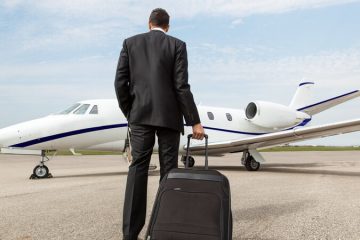
Corporate Flight Management: Effective Ways To Book Air Travel
Booking flights for corporate travel requires knowledge of inventory and an efficient network with the vendors. However, booking flights as per the requirements is work that is only half done. When planning and managing corporate Read more…

What To Look For In Business Travel Booking Sites In Kuwait?
Booking for corporate travel in Kuwait and around the world requires ultimate diligence and knowledge about the flights, hotels, transfers, and schedules. It may be extremely challenging if you are using manual processes and personal Read more…
Let's get started!

Thanks for submitting your details.
We'll get back to you shortly.
- SUGGESTED TOPICS
- The Magazine
- Newsletters
- Managing Yourself
- Managing Teams
- Work-life Balance
- The Big Idea
- Data & Visuals
- Reading Lists
- Case Selections
- HBR Learning
- Topic Feeds
- Account Settings
- Email Preferences
Purpose Matters for Business Travel, Too
- Claudio Fernández-Aráoz

So plan accordingly.
Why do we travel? Some 60,000 years ago we humans began to journey out of the ecological niche we shared with our primate cousins in Africa to explore the unknown. Our curiosity led us from the savanna to coasts, deserts, forests, valleys, mountains, and ice caps. Evolution made us ever more curious, and so we traveled to learn more. On a to-do list written by Leonardo da Vinci around 1490, most of the tasks he wanted to accomplish involved visiting various masters in their fields. Travel allows us to, a Montaigne put it, “rub and polish our brains” against people from different regions and cultures.
- Claudio Fernández-Aráoz is an advisor on Talent and Family Businesses, a frequent lecturer at Harvard Business School, and the author of It’s Not the How or the What but the Who .
Partner Center

Nice to meet you.
Enter your email to receive our weekly G2 Tea newsletter with the hottest marketing news, trends, and expert opinions.
Business Travel: The Beginner’s Guide
June 12, 2019
by Rob Browne

In a world where it has become as easy as a quick few taps on smartphone to book a trip across the world, business travel is more widespread and accessible than ever before.
Are you a recent graduate or new employee looking for an introduction to business travel? This article provides an overview of the field as a whole as well as a guide to traveling for work and managing your business travel expenses .
What is business travel? A step-by-step business trip guide
Research from Statista shows that business travel contributes almost $1.3 trillion to the global economy in a single year, making it one of the world’s largest economic industries. Further research highlights only upward trends in the amount that is spent on business travel as well.
This research reflects an increasingly intertwined global economy. With the speed at which businesses on opposite sides of the world can interact over the internet and travel to meet with each other, employees are operating in a space where location is fluid and business interests can converge across state, national, and continental lines.
Thus, business travel is a vital part of many companies’ lifebloods. In this article, we’ll explore the four temporal components of a business trip and use them as a lens through which to discuss business travel.
Booking business travel
Oftentimes, the dates and general logistics of your business trip are determined by the wants and needs of the client(s) you visit on the trip. If possible, it’s always best to book as far in advance as you can to plan on being out of office. Of course this won’t always be the case, as business trips occasionally arise on short notice if a client needs a quick turnaround time on a particular task that requires a visit.
Booking a business trip is not the same as browsing the internet for the best deals on a family vacation . The online booking platform (OBT) that you use for securing your transportation and hotel depends on your company’s internal travel policy.
Some companies require their employees to book through a specific brand of travel management software or using a travel management company . A key motivator for companies to use travel management software is that it makes it easier to ensure that employees comply with corporate travel policies. These policies include which airfare class employees are allowed to book, which hotel star class they can stay in, and the class of rental car they can use.
For others, booking your business trip may be a similar experience to booking a trip outside of work, as some companies tolerate open market bookings.
The rigidity with which you’ll be dealing with in terms of booking compliance is dependent upon your company’s travel policy and budget. In most cases, you’ll be looking at a range of mid-tier flight and hotel options that best fit your needs in terms of schedule and distance from the site where you’ll conduct most of your business.
Preparing for the trip
Business trips are often short and have a singular purpose. Get to your destination, meet with the people you need to meet with, and go home. Because of the high energy level required for such a focused itinerary, you’ll want to make sure that you are well-rested going into the trip.
After arriving at your destination, there may not be time to catch a nap before heading to your first meeting, so you’ll want to ensure that you are able to operate at peak performance as soon as you arrive.
Travel with your important items in your carry-on bag just in case anything happens to your checked luggage. Almost everything you bring on a business trip should be essential to your work, and with a short turnaround between arrival and meetings, you can’t risk not having item X, Y, Z..
On the trip
While on your trip, optimize for everything you can. Outside of any business-related commitments, you’ll want to make sure you have as much time as you need for your work. If there is a particular company policy regarding a daily per diem, or allowance, for meals or transportation, you’ll also need to keep that in mind.
If your trip is to a destination with a lot to see outside business hours or a place where you have friends or family, you can also check with your company’s travel policy regarding bleisure travel. Bleisure, a combination of “business” and “leisure,” means adding a few days onto the beginning or end of your trip to enjoy the opportunity to spend some time not only inside an office.
After the trip
The most important part of finishing a business trip is gathering your expenses and filing an expense report. Between flights, hotels, other transportation, and food, you likely spend a decent amount of money and would like your expenses to be approved and reimbursed as quickly as possible.
Having your expenses approved and reimbursed is typically an easy process, especially if your company uses a form of expense management software .

It’s a trip!
Traveling for work may seem daunting, but thinking about your trip in terms of these four segments will help you succeed at all points of your trip. If your job allows you the opportunity to spend time outside of your office, enjoy it—and maybe spend time in some exciting destinations along the way.

Rob is a former content associate at G2. Originally from New Jersey, he previously worked at an NYC-based business travel startup. (he/him/his)
Recommended Articles

Small Business Finance Guide for Beginners
Alright. You started your small business and everything seems to be going pretty well.
by Mary Clare Novak

Contributor Network
How to Use Process Automation to Boost Your Small Business
If you own a small business, you know how difficult it is to get everything up and running...
by Ashley Spencer

Demystifying the 7 Best Small Business Checking Accounts
Keeping your work and life separate is one of the most essential elements of starting your own...
by Piper Thomson
Never miss a post.
Subscribe to keep your fingers on the tech pulse.
By submitting this form, you are agreeing to receive marketing communications from G2.

The 7 Main Types of Business Travel
For many organisations, building relationships forms the crux of their business operations, which is why business travel is so important. Relationships are far easier to maintain through face-to-face interactions as it breeds genuineness and builds trust between business associates.
It’s important to understand what kinds of trips you can expect when you’re asked to travel for business. In this post, we’ll take a look at the different types of business travel commonly practised in the corporate world.
Why Do Different Types of Business Travel Exist?
Travelling for business is an essential part of managing distant business entities and makes clients, suppliers and other associated parties feel as though they are a key part of the organisation those travelling represent.
Companies may also emphasise specific aspects of business relationship building, the scope of which is multifaceted. Different types of business travel, therefore, apply to different business relationships, which is why an array of travel types exist.
Types of Business Travel
Different types of business travel fulfil different purposes for a company or business. Understanding the different types of business travel means that you can extrapolate optimal value from business trips you take yourself or send your team members on. Below, we’ve broken down the kinds of interactions you can expect to encounter when you travel for business.
Conferences and conventions
Travelling for conferences is a great thing to do when you’re looking to conduct market research, understand a particular client base, market your product or service, or simply network with other experts in your field.
Some of the factors you have to consider when travelling for a conference or convention are value added to the company after attendance, ticket costs, whether you’re going as a guest or as an exhibitor or speaker, how you and your employees will get there, and any accommodation requirements if any.
Before travelling for a conference or convention, you should take a look at which other organisations are planning to attend the event. This will allow you to develop a strategy to optimise how you and your team will spend time there.

Business meetings
Business meetings are an essential part of ensuring that your business continues to expand and grow positively. A business meeting does not have to only centre around clients but can also be between other business entities like suppliers, meetings with the board, and prospective investors.
You may also be required to travel to present to another business if you are giving demonstrations of a particular product or service, in which case you will be travelling for the sake of sales pitching.

Corporate events
If you have established yourself within the corporate world, then you may have to attend corporate events. This would include attending awards ceremonies, private or internal events like office parties, seminars, training sessions or product launches. Not all corporate events are open for every employee. It’s likely that you will only travel for corporate events if you are in management, client relations, or a C-level position within your organisation.

Team-building activities
If you’re part of a company that has a group of staff members, it’s vital that you ensure the morale within a team remains high. One of the best ways to do this is through team-building activities. Team-building has many benefits, including developing communication skills within the team, forming an understanding of members’ expertise and speciality areas, and enabling networking with other departments and across the employment hierarchy.

Bleisure travel
With the rise in remote working, the concept of bleisure travel is becoming more and more well-known. If someone is required to travel for business, it is now common practice to add some time onto the trip for some personal time.
The person travelling may wish to use some of their allocated leave to enjoy some of the sights and attractions located in the same place they have travelled to for a primarily business purpose. Bleisure travel integrates travelling for business and for leisure and is a great way to incorporate a holiday away from home.

Transfers and offshore work
In today’s business world, many companies have global branches and entities worldwide. For example, companies that manufacture and sell products may have their manufacturing facilities located in a different country. There may also be offices worldwide that specialise in different departments.
A work transfer may be offered if a company feels that value will be added to them if they send staff members to international locations. Transfers entail sending staff members away for extended periods to allow them to enhance their skills in other areas. With this kind of business travel, the company may be required to organise the employee’s accommodation and provide them with a live-out allowance.


Site visits
Businesses that operate within industries that own major plants often have their corporate offices located separately from these sites. For example, a major power supplier will have an office based in the city, while their power plant is located in a more rural setting.
Members of the corporate office are often required to visit these sites to gain insights into business operations and get an overview of other aspects like outputs and performance. Site visits, therefore, form an integral part of certain business interactions and require businesses to allow for travel to these sites.

Choosing Accommodation for Different Types of Business Travel
Organising accommodation for those travelling on behalf of your company is an essential part of corporate travel management. Accommodation only needs to be organised if it is impossible to return home on the same day that travel is required. You also want to ensure that your representatives attend meetings feeling refreshed and prepared, which should influence the type of accommodation you book for your staff.
For client meetings and sales pitches, booking a hotel for representatives will allow staff members to freshen up and get a good night’s sleep before a meeting. If business travel is only for a short period of time, the accommodation such as a hotel is more than sufficient. However, for more extended business travel purposes like offshore work or transfers, serviced apartments may be more appropriate. The accommodation you choose depends on the nature of business travel .
The Role of Serviced Apartments in Business Travel
Serviced apartments are the perfect accommodation solution for those travelling for business who require a bit more privacy and agency. Having a serviced apartment means business travellers will not have to worry about aspects such as cleaning, but they do have the option to do laundry, cook for themselves and relax in a more homely environment than a hotel.
For this reason, serviced apartments are often better suited to contract workers or those required to take extended trips for business.
All apartments available on TrustedStays have been pre-vetted against our high quality and safety standards. This gives business travel organisers peace of mind that the accommodation aspect of the business trips is well-taken care of. With serviced apartment options in many locations, get in touch today to see how we can help you plan corporate trips.

1000s of quality assured homes across the UK

All property partners are independently accredited by the Short Term Accommodation Association

Professionally cleaned and managed homes, meeting the STAA'S guidance on cleaning standards

A home from home experience, even when you are travelling for work
Read what interests you most:
Receive an exclusive guide when you sign up.
Simply sign up to our newsletter and be the very first to find out exclusive information for all the latest work travel and accommodation news and we’ll send you a free guide on making the most from short term rentals.
We won’t spam you. Ever.

Business Travel 101: What is Business Travel? And Why Use a Travel Management Company?
If you’re wondering why to use a travel management company, discover the many benefits partnering with one can deliver..
When you’re just getting started with business travel, you may encounter the term “travel management company,” or TMC for short. Why use a travel management company? There are many benefits that companies discover when they partner with a TMC.
To help you accelerate your journey into business travel. Here’s a look at the motivations behind business travel as well as the benefits of working with a TMC.

What is Business Travel?
Business travel is when an employee leaves his or her primary office to work elsewhere. This can include short trips, like leaving your home in Los Angeles to visit a prospective client in San Diego. And this can include long trips, like flying from Chicago to London for meetings with your company’s UK office.
Americans make more than 400 million long-distance business trips each year, according to the Bureau of Transportation Statistics . Those trips account for about 16% of all long-distance travel. What motivates companies to send their employees on these journeys?
There are a number of reasons to travel for business:
- Closing Deals: It’s common to close large and important deals in-person.
- Exploring New Markets: Companies looking to expand into new markets will visit them to explore the conditions on the ground and to conduct research.
- Internal Meetings: In an age of remote work, companies may ask employees to travel for internal meetings or other collaboration events.
- Prospecting: Organizations often attend expos to display their products and/or services and to find prospective clients.
- Education: Companies may ask employees to travel to conferences where they can learn more about trends and best practices in their functional areas.
- Visiting Existing Clients: Account managers and others may regularly visit their largest clients. They can check in on them, to take them out for a meal or drink, and generally to show gratitude for their business.
These are just several examples of reasons why companies may ask employees to travel. There are countless motivations for workers to leave their primary offices for several days at a time.

Who Manages Corporate Travel?
The actual people who manage travel fall into two categories: internal and external.
Internally, a company may use someone in the human resources department to help book trips for Travelers and otherwise manage the travel program. Companies with more intensive travel schedules may have a dedicated Travel Manager or someone who arranges travel for employees.
Companies also work with third parties to manage travel. Organizations can completely outsource their travel to a third party. But it’s more often a hybrid approach where someone internal (like a Travel Manager) works in tandem with a third-party (like a TMC).

Why Use a Travel Management Company?
As you explore business travel for your company, you may find yourself overwhelmed by the many tasks and responsibilities associated with managing travel. That’s why so many organizations choose to work with a TMC.
TMCs work with everything from small businesses with limited travel needs to large enterprises with enormous travel budgets.
These companies choose to work with TMCs because of the many benefits a third-party management company can deliver, including:
- Greater efficiency: A TMC can help the business and its Travelers do everything faster and more efficiently. You have a team of travel experts in your corner so that your employees can focus on doing their work.
- Lower costs: TMCs often have access to discounts that aren’t available to just anyone. They can also help organizations negotiate favorable contracts with vendors.
- Managed risk: Risk management is how companies live up to their duty-of-care responsibility to keep employees healthy and safe while away from the office. Many TMCs offer risk management services that help companies live up to that responsibility.
- Comprehensive policies: It’s hard to create a comprehensive travel policy from scratch. TMCs can help your organization develop a travel policy that meets both the company’s needs and the needs of its Travelers.
- Technology implementation: The right technologies can help you maximize your investment in business travel. A TMC can help you identify and implement the right technologies for your organization.
- Custom reporting: Optimizing travel spend is only possible when you have access to your travel data. TMCs can help you accrue and analyze your travel data so you can optimize your program.
- Assistance with trip disruptions: Things happen during business travel. A weather event might close an airport, for example, or mechanical issues may delay a flight. TMCs can step in and help when those disruptions occur.
As noted in the previous section, TMCs often work with a Travel Manager or another point person at their clients’ companies to get the most out of business travel. For example, a TMC may develop a system for custom reporting. Then a Travel Manager will present data to executives when making important travel-related decision. Or a Travel Manager may work with internal parties to create a travel policy. Then a TMC will review the policy and make recommendations on how to improve it.
Looking for the Best TMC?
If you’re looking for a TMC, you’ll find two different payment structures. Some TMCs will charge fees for booking and other activities, which can quickly add up and make your travel program more expensive. Others create inclusive contracts at a fixed cost so that they can serve as a true resource to their clients without worrying about expensive fees.
At JTB Business Travel, we take the latter approach of creating inclusive contracts that allow us to serve as a true resource to our clients. We help the companies maximize their spend on business travel, while also ensuring Travelers enjoy the most productive and comfortable trips possible. Behind everything we do is a common-sense approach to business travel.
Contact us today to discover what we can do as your TMC.
Related Post
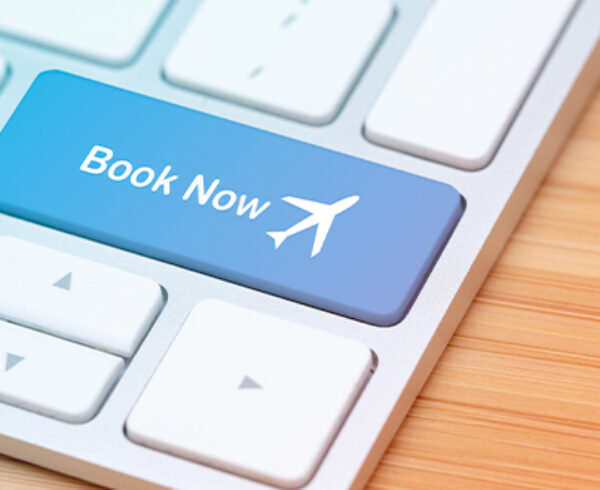
NDC Content: What to Expect from JTB Business Travel
NDC has been in the works for more than a decade. However, it’s still a somewhat foreign concept to many who book travel for work. JTB Business Travel is channeling NDC content to make Travel Read more

Our Thriving Network of Global Partners Gets Better With Spotnana’s Booking Platform
These two like-minded companies are joining forces to ensure access to a next-generation booking platform plus world-class customer service for small- and medium-sized enterprises. A new partnership announced earlier this month between JTB Business Travel Read more

Sustainability-Focused Airlines: How to Choose, Support and Fly Them
A lot of airlines purport to be “sustainable,” but are some airlines more sustainable than others? A look at the world’s most sustainability-focused airlines says yes. In some regions of the world, sustainability is a Read more

Travel by Train vs. Plane for Short Trips
When it comes to choosing travel by train vs plane, there’s a lot to consider: speed, convenience, price—and, of course, sustainability. Depending on where you live in the world, your first instinct might be to Read more

Prioritize Traveler Mental Health and Wellbeing with Stress-Free Travel
Ensure your Travelers are more productive on the road and willing to take that next business trip. Prioritize more positive and stress-free travel experiences. It’s no secret that much of the world is living in Read more
Leave a Comment
Add to the conversation or ask a question: cancel reply.
This site uses Akismet to reduce spam. Learn how your comment data is processed .
Post Categories
- For Executives
- For Travel Managers
- For Travelers
- Press Release
Recent Posts

The Importance of Ethical Sourcing in Travel
Stay up to date.
The Choice Is Yours - Get the exact Business Travel information you want delivered directly to your inbox.
TravelConcierge News
TravelConcierge News (Japanese)
- Travel Risk Alerts
Waypoint Monthly News
JTB Event Updates
The latest from JTB Business Travel
- NDC Content: What to Expect from JTB Business Travel NDC has been in the works for more than a decade. However, it’s still a somewhat foreign concept to many who book travel for work. JTB Business Travel is channeling NDC content to make Travel Arrangers’ and Travelers’ experiences better. New Distribution Capability (NDC) has been touted as a new solution that will offer moreRead […]
- Our Thriving Network of Global Partners Gets Better With Spotnana’s Booking Platform These two like-minded companies are joining forces to ensure access to a next-generation booking platform plus world-class customer service for small- and medium-sized enterprises. A new partnership announced earlier this month between JTB Business Travel and Spotnana blends the benefits of exceptional travel service and world-class Travel-as-a-Service technology to the benefit of small- and medium-sizedRead […]
- Sustainability-Focused Airlines: How to Choose, Support and Fly Them A lot of airlines purport to be “sustainable,” but are some airlines more sustainable than others? A look at the world’s most sustainability-focused airlines says yes. In some regions of the world, sustainability is a big deal. Governments have taken significant measures to place parameters around what private companies can do. They’ve set standards forRead […]
- The Importance of Ethical Sourcing in Travel Thinking about how your organization travels? A lot of sustainability buzzwords will arise: carbon accounting, ESG and, now, ethical sourcing. What does it mean, and why does it matter? Ethical sourcing is just one of the phrases you’ll hear bandied about as you first begin approaching your company’s sustainable business travel. What it means toRead […]
- JTB Business Travel Partners with Spotnana to Modernize Business Travel Management This pairing of exceptional service and industry-leading technology will benefit small to medium enterprises as they pursue seamless, cost-efficient, and sustainable travel. Torrance, CA, May 1, 2024 – JTB Business Travel, a JTB USA, Inc. brand and leader in providing tailored travel management to small and midsize enterprises, announces its global strategic partnership with Spotnana,Read […]
- Meet Jackie Shiloh: Fostering Trust and Building Relationships with Business Travelers For this operations manager, the small stuff adds up to make a big impact, both in her professional and personal life. In today’s Waypoint Blog post, we’re introducing you to one of the newer members of the JTB Business Travel team. Based in Philadelphia, Pennsylvania, Jackie Shiloh stepped into the role of operations manager justRead […]
- Carry-On Luggage or Checked Baggage: Which is Best for Your Trip? It’s a question that plagues every Traveler from time to time: Should I take carry-on luggage or checked baggage? In some cases, the answer is a no-brainer. Of course, you should take a checked bag if you’re traveling long-distance. Take a checked bag if you’re staying in your destination for more than just a fewRead […]
- So, What Do Flight Attendants Do Anyway? They give a safety briefing and pass out some drinks, but their jobs are much more important than you might initially think. So, what do flight attendants do in the modern age of flying? As a frequent business Traveler, you may take flight attendants for granted and hardly notice them, even as they tryRead […]
SAP Concur Partner | TMC Elite
Privacy Statement
GDPR and Privacy Statement Europe
GDPR Privacy Statement
CCPA Privacy Policy
Copyright 2022 JTB Business Travel. All Rights Reserved. CST#2031531-50
Site by Ruff Haus
JTB Business Travel Services:
• Home
• For Travelers
• For Travel Managers
• For Executives
• Contact Us
Stay Connected:
- Trip Disruption Assistance
- Travel Ready, Travel Safe
- Book Travel Anytime
- Before Your Trip
- During Your Trip
- After Your Trip
- Business Intelligence
- Duty of Care
- Traveler Care
- Account Management Services
- Cost Saving Programs
- Full Content
- Travel Technologies
- Cost Avoidance
- Virtual Payments
- Risk Mitigation
- Travel Management 2.0
- Our Expertise
- Spend Management
- Corporate Meetings & Events
- JTB AnswerCenter
- Business Travel InSight
- Traveler Training
- Video Library
- Waypoint Blog
- Go Like a Pro with National
- eSIM Phone Services
- eVisa Assistance
- Global Entry Locations
- Print My Invoice
- Travel Requirements Help
- Travel Reports
- Traveler WorldCue
- TSA PreCheck Map
- JTB Business Travel
- JTB Business Travel Brand Resources
- English (UK)
- English (CA)
- Deutsch (DE)
- Deutsch (CH)
Main types of business travel and how to arrange accommodation
What are the different types of business travel, event and conference travel, internal meetings and visiting offices, company retreats, client meetings, trade fairs, transfers and offshore work, bleisure travel, business travel and transportation.
- Cost: Are certain transport options more budget-friendly?
- Distance: How far will travelers be going?
- Urgency: Are travelers short on time? Would they benefit from a faster transportation option (such as a high-speed train or a short-haul flight?)
- Group bookings : Do travelers need to be seated together? Are there cost advantages to having travelers share transportation (such as a shared vehicle?)
- Sustainability policies : Would certain transport options help meet your corporate sustainability goals and lower your carbon footprint?
- Accessibility: Do any travelers have mobility challenges or other accessibility needs?
- Seniority: Will you offer business-class tickets or other travel perks and upgrades for senior employees and executives ?
Business travel and accommodation
- Cost: Is budget a major factor in your decision-making? If so, are there budget-friendly accommodation options (like short-term apartment rentals) available?
- Facilities: Will travelers on long-term trips need access to certain household facilities (such as a kitchen or laundry?) Will travelers on short-term trips need access to certain time-saving facilities (like a 24-hour front desk, printer, WiFi, restaurant or gym on-premises, etc.?)
- Accessibility: Do any travelers have reduced mobility or other accessibility needs? Does the property have stairs or other mobility impediments?
- Safety: Is the property in a safe location? Are there security cameras or personnel on-site?
- Privacy: Will travelers need to share hotel rooms or other spaces ? Do all travelers feel comfortable, or are there potential privacy concerns?
- Seniority: Will you offer high-end hotels and a VIP experience for senior employees and executives ?
Why corporate travel policies are an essential for business travel
?)
Make business travel simpler. Forever.
- See our platform in action . Trusted by thousands of companies worldwide, TravelPerk makes business travel simpler to manage with more flexibility, full control of spending with easy reporting, and options to offset your carbon footprint.
- Find hundreds of resources on all things business travel, from tips on traveling more sustainably, to advice on setting up a business travel policy, and managing your expenses. Our latest e-books and blog posts have you covered.
- Never miss another update. Stay in touch with us on social for the latest product releases, upcoming events, and articles fresh off the press.
?)
5 inefficient processes affecting your business and how to fix them
?)
Duty of care in the workplace: everything you need to know
?)
CEO Roles and Responsibilities: conquer your role as CEO
- Business Travel Management
- Offset Carbon Footprint
- Flexible travel
- Travelperk Sustainability Policy
- Corporate Travel Resources
- Corporate Travel Glossary
- For Travel Managers
- For Finance Teams
- For Travelers
- Thoughts from TravelPerk
- Careers Hiring
- User Reviews
- Integrations
- Privacy Center
- Help Center
- Privacy Policy
- Cookies Policy
- Modern Slavery Act | Statement
- Supplier Code of Conduct
5 types of business travel and how to arrange transport
Aug 8, 2022

Without business travel, professionals would be restricted to video calls — something we’ve all grown tired of in recent years.
While video calls have their place, getting away from the office or remote workplace is valuable for individuals and beneficial for companies. There are many types of business travel , from a working lunch with a new client to a week-long overseas conference. Explore the value of business travel and the goals it helps to achieve.
Five types of business travel
Business travel covers all trips made for work purposes. And all types of business travel have a purpose. Client meetings and sales pitches support business development, while other trips, like conferences, focus on education and networking.
Client meetings
Professionals average 25.6 meetings per week .
Such is the frequency of meetings — whether a routine client meeting or an impromptu catch-up with a supplier — arranging transport to and from these meetings is an everyday occurrence.
And getting out of the office for some of those meetings can make them more productive.
Face-to-face meetings and business lunches remain essential to building healthy, long-lasting relationships. Nothing beats putting a face to a name or closing a deal with a handshake.
Events and conferences
To develop your workforce, consider encouraging your employees to attend conferences, trade shows, and workshops.
These professional learning and development sessions are everyday activities that typically attract large numbers of employees. Indeed, 68% of workers consider learning and development the most important opportunity offered by employers.
Such demand means making additional travel considerations — namely, cost and environmental impact.
Visiting other offices
Business travel is essential for companies with multiple offices as it helps tie the entire business operation together.
Employees and management will often travel to discuss projects, performance, and strategy with other offices. Travel arrangements will vary depending on whether offices are local, national, or international.
Team-building activities
When planning a team-building event, the most important thing is travel.
It wouldn’t be much of a team-building event if only half of your team made it! There are plenty of team-building activities you can host within the office walls, but when something more adventurous comes calling, you need to find a way for everyone to get there. The activities to connect with your team are endless — from escape rooms to summer golf days.
No, that’s not a typo. Bleisure is the time added to the end of a business trip for sightseeing and relaxation.
If the business trip’s long-distance, it’s understandable that employees are eager to stay and enjoy the sights. Surveys show that 75% of business travellers extend trips for leisure purposes — and it’s a growing trend .
With professionals accustomed to remote working, remaining in travel destinations for days or weeks beyond business trips could become the new normal.

Finding the best way to travel for work
There are various forms of ground transport to suit all types of business travel .
Companies should have a travel policy that allows employees to travel for work and claim expenses. Many companies are now building sustainable travel policies to reduce their environmental impact.
But whether there’s a clear travel policy in place or not, any time an individual or team travels for work, you need to consider:
- Sustainability;
- Accessibility;
- The number of travellers.
Company cars
Many see company cars as an ideal solution for arranging business travel. But when considering the rising fuel, maintenance, and insurance costs, alternatives provide better value.
Owning a fleet may be convenient, but the outlay of providing company cars rarely makes financial sense. Plus, if you purchase a company car to share amongst employees, things can get complicated when multiple people need to use it on the same day.
Some companies try to solve the difficulties of owning a fleet by offering team members a car allowance . But this can give employers less control over the costs, and there’s no guarantee the fuel will be used for business travel.
Public transport
Public transportation is an environmentally-friendly travel option. And it can work out cheaper than owning a fleet of company cars.
The carbon emissions and price perks are appealing, but if you’re looking for a reliable, stress-free service, you’ll want to keep scrolling.
You have to adjust your plans to suit timetables rather than having the flexibility to travel any time. Factor in the time spent plotting routes, navigating a stressful rush hour, and potentially unreliable services, and it’s easy to see why many opt for different transport methods.
You can use the time in the backseat of a taxi to work on important tasks or prepare for the meeting ahead. The journey promises to be relaxing and stress-free, but the before and after can be troublesome.
Hailing a taxi or phoning a firm to organise a pick-up is frustrating, especially in a remote and unfamiliar area. And at the end of your journey, you can get stung with an eye-watering bill if you use the wrong firm.
Then employees have to foot the bill until the travel expense claim is processed.
Bolt Business
You can get all the benefits of various transport methods in one complete package with Bolt Business .
Through the Bolt Business dashboard , admins can:
- Add and remove employees;
- Set travel rules and spending limits;
- Book rides for employees and clients with Ride Booker .
Once added, employees can arrange ground travel using their Bolt app:
- Getting a ride to the airport;
- Commuting on an electric scooter;
- Arriving in a premium car for important sales meetings.
And on top of that, Bolt Business is the sustainable option for your team’s business travel:
- All rides in Europe are carbon-neutral ;
- Electric cars have zero tailpipe emissions;
- E-scooters are climate-positive.
How to claim travel expenses
The process of claiming travel expenses varies from company to company, but they’re always a waste of valuable working hours.
The average expense report takes 20 minutes to complete . That means a team of 10 (each submitting one expense report per month) would lose 40 working hours a year. And that’s if the process goes smoothly.
Aside from the time they take, expenses are often aggravating too. From gathering train tickets and taxi receipts to submitting expense reports, going through the motions of reclaiming expenses is arduous.
How to make claiming travel expenses easier
Bolt Business is a single solution that makes booking and reporting on corporate ground travel easier.
You can manage and pay for all your company’s ground travel from a single dashboard. And pre-filled digital receipts are provided automatically after every journey. That means no more paperwork and one less time-consuming task for employees.
Find out how the workers at one company are saving up to 30 minutes a day now they don’t need to expense their travel.

Recent posts

Meet Bolt Send: your fast package delivery service
May 22, 2024
Introducing Bolt Send, a convenient package delivery service. It’s perfect for surprising a loved one with a gift, returning something a friend left behind, or ensuring an item gets where […]

From junkyard to Living Vroom: the world’s first street furniture collection made from upcycled car parts
What if a public space could be as inviting as your home? With more than half of the urban space dedicated to car infrastructure, cities have become pragmatic commuting corridors. […]

Protecting scooter and e-bike riders with Flare Aware
May 10, 2024
80% of serious accidents involving cyclists and scooter riders happen because of motor vehicles. So, to improve rider safety even further, we’ve partnered with Flare Aware. What is Flare Aware? […]
Get a ride in 500+ cities across the world
Download app
Earn extra money driving your car
Sign up to drive

- Travel management Toggle submenu Egencia Overview Travel management solutions Amex GBT Neo1 Amex GBT Neo Amex GBT Select Amex GBT Ovation Manage your corporate travel program Corporate travel policy Travel risk management Travel expense management Reporting Travel management consulting Industry Solutions Legal Transportation & Logistics
Egencia reviews

See how Egencia works

- Customer center Toggle submenu Travelers Help center Business traveler center Download the app Travel arrangers Help center Travel arranger center Training resources Travel managers Connect community Product updates Customer training
- Watch a demo
- Request a demo
- About Egencia
Purposeful Travel - Travel Programs with Purpose & Sustainability
Adding purpose to your travel program with purposeful travel.

Business travel is entering a new era with organizations focusing more than ever on what benefits it brings. Previously, face-to-face meetings were considered vital for connecting with clients. Now these same types of trips might require manager approval before booking.
What’s changed?
Since the pandemic, the fate of the corporate travel industry has been hard to predict. Many businesses are still limiting travel to essential trips and relying heavily on video calls.
Travel managers around the world are now expected to take a closer look at why their people travel and are often operating from a zero-based budget.
And it’s not just cost…
Other factors that may impact the future of travel include:
- Sustainability: Over 70 percent of travel managers across North America and Europe said that they're now concerned with their company’s carbon footprint and the environmental impact of travel (you can find out more about sustainable travel and building an eco-friendly travel program here ).
- The future of work: Organizations are taking a wide range of views on when, how and if they want to see their teams return to the office - with 72 percent of CFOs expecting their office space to shrink over the next two years.
- The personal appetite for travel has changed : A recent poll of business travelers in Europe suggested that only one third expect their own volume of travel to return the same level as before the pandemic.
The new role of the travel manager
The role of the travel manager has changed significantly. Responsibilities now include defining permissible travel , mitigating risk and supporting traveler wellbeing – all while optimizing spend.
So, what can travel managers do?
Travel managers have a unique opportunity to expand their scope and to be recognized as a leader by the executive team. Creating a framework for deciding which trips to prioritize, and perhaps increase, will also help with an age-old problem travel managers have struggled with – how to communicate the value of business travel. And that’s where purposeful travel comes in.
What is purposeful travel?
The purposeful travel model changes the focus and aligns the travel program strategically to core business objectives. It focuses on both the ‘how’ and the ‘why’ of business travel and how it can make a positive impact on your business.
For example, the travel manager of a pharmaceutical company whose purpose is to 'make the world a healthier place' can demonstrate how travel increases their ability to conduct research, deliver breakthroughs and ensure their products are well known in the marketplace.
Adding a focus on the 'why' of business travel turns it into a strategic investment rather than a cost to be cut. So, instead of the CFO asking, 'what travel can we eliminate in Q4 to meet our budgets?', under a purposeful travel program that question becomes 'what’s the right amount to invest in travel to get the best return?’ Or even, 'what would we get in return if we invested in more travel to achieve our objectives?'
So, how do you build a purposeful travel program?
To help you create a travel management program that optimizes spend while prioritizing traveler wellbeing and reducing liability, we’ve teamed up with Festive Road to provide you with an easy three-step framework that includes:
- How to find your purpose and add true value to your travel
- New ways of thinking
- What questions you should ask key stakeholders
- How to get decision makers to sign off your purposeful travel
Download the white paper now to discover how you can build a purposeful travel program focused on the types of travel experiences that benefit your company most.
Want to read more about purposeful travel? Check out this article by Festive Road - the Era of Purposeful Travel.
Download the purposeful travel white paper
Recommended for you.

You are using an outdated browser. Please upgrade your browser to improve your experience and security.

- Corporate Travel
- Meetings & Events
- Sustainability
- Global Network
- Case Studies
- Business Travel Blog
Local solutions, delivered globally
CTM provides local service solutions to customers around the world. Please select your local region, and start experiencing the CTM difference!
Don’t show this again

5 April 2022
Business travel with purpose: Can you afford not to go?
After a two-year pause, the world has reopened to business travel. in fact, business travel recovery is predicted to experience 38% year-over-year growth in 2022 to usd$1 trillion, and exceed pre-pandemic 2019 spend levels (usd$1.4 trillion) by 2024, a year earlier than previously forecast according to the global business travel association’s (gbta) 2021 business travel index (bti)..
Further, of the 400 global business travelers polled in GBTA’s BTI research, 86% reported that they need travel to accomplish their business goals , and 81% believe that their volume of domestic business travel will be greater or on par in 2022 than it was before the pandemic.
For most businesses, the return to business travel is no longer a matter of “if” or “when,” but “why.” As such, companies are more focused than ever before on understanding the return on investment of their travel spend.
According to GBTA’s research, chief financial officers (CFOs) felt the top return-on-investment reasons for business travel in 2022 would be:
- Sales and business development (68%)
- Internal business planning and strategy (50%)
- Client account management (48%)
- Employee training and development (48%).
This makes sense given the proven impact of face-to-face connectivity on winning and retaining business.
According to the Harvard Business Review , face-to-face communication is up to 34 times more powerful than online communication . This is further supported by a study conducted by Forbes where 95% of respondents said face-to-face meetings are essential for long-term business relationships. People prefer in-person meetings because they:

Corporate Travel Management (CTM)’s 2021 Business Travel Survey asked what business travelers were most looking forward to achieving from their business travel in 2022. Beyond sales and customer retention motivations, respondents listed engaging with partners and suppliers and driving innovation and knowledge sharing within their top 5 objectives , demonstrating a shift to purpose led business travel programs.
When we need to reach an agreement, collaborate, and ensure a mutual understanding between people, the function of face-to-face meetings is an unrivaled solution for many.
Designing a travel program that can demonstrate its value as an enabler to your business strategy instead of a budget line item will not only give your business a competitive edge in sales and customer retention but also provide opportunities for further savings (and improved ROI) through increased employee engagement, development, and retention while supporting ideation and innovation.
Business travel with purpose for sales and customer retention
Retaining customers is considered to be at least five times more cost-effective than finding new ones, which is why retention of customers is critical to business performance.
According to a Harvard Business Review , an increase of 5% in customer retention can lead to 25%-95% higher profits. Investing time and money into in-person meetings highlight the importance of the business relationship. If you’re not connecting face-to-face with your customers but a competitor is, the risk of losing your customer could far outweigh the cost of your trip.
Mary Ellen Hess, CTM’s Executive Vice President of Business Development – North America , knows first-hand the importance and value of in-person meetings and says, “Procuring travel services involves building relationships, rapport, and trust. At CTM we’ve been fortunate to experience significant growth during the pandemic and the key to this has been the continuation of meeting in person where possible. Personalized service is a core value at CTM and there’s just nothing like face to face communication to demonstrate loyalty and trust.”
A travel management company (TMC) can also support organizations in their analysis of the value of their business travel expenditure, as it aligns to your business’s goals and performance data, by capturing the “reason for travel” at the point of booking. A shift in “reason for travel” aligned to a rise or fall in business performance (for example sales, customer retention, employee churn) may be a valuable indicator for reviewing your travel program, budget, or approval processes.
The data 1 below represents a CTM customer’s travel activity by reason code pre and post-pandemic. Pre-pandemic (2019), the customer’s top 3 reasons for traveling include:
- Internal Meetings
- Client Meetings
- Business Development
In contrast, the customer’s post-pandemic travel data presents some interesting shifts in the reasons for travel, including:
- Internal Meetings dropped from #1 to #12 with a change of focus reflective of post-pandemic business needs
- Client meetings remained at #2 – demonstrating a recognized value in customer retention travel activity
- Business Development dropped from #3 to #9 – with more prioritization placed on project-based business trips and staff relocation.
1 CTM AU/NZ travel activity – legal industry customer. Date: July 2019 – February 2022.
CTM’s Managing Director Jamie Pherous acknowledges the value of CTM’s own travel activity as the driver of record new business wins during the first half of FY22. Pherous said “I have made 26 flights in the past seven weeks, including international travel. We have won significant new client accounts because we are prepared to get on a plane and meet face to face, showing our investment in building relationships and going the extra mile for our customers. We’ve been able to effectively resolve supply chain constraints due to face-to-face engagement, which has been a great benefit to our business and customers and could not have been possible without traveling.”
In a recent interview with Business Travel News, Pherous spoke about the impact on businesses operating in countries with closed or restricted borders. “If you’re closed out, you’re going to miss winning market share or you’re going to lose customers. And as we all know, supply chain issues right now are a big, global problem. Those that can get on planes and see their supplier and sort it out get in front of the queue of the others that can’t. There’s a real cost now to those that don’t open up when the rest of the global economy has opened.”
Pherous also explains, “Our teams have been able to fast-track some complex projects by getting together in a room, achieving tangible outcomes in a matter of hours instead of weeks or months. On a recent business trip to North America, we were able to achieve resolutions within four days of meeting in person that would have taken months to resolve via virtual means. The benefits of collaboration and problem solving as a team together in one room are undeniable.”

Business travel for employee engagement, development, and retention
According to the Work Institute , it costs as much as 33% of a workers’ annual salary to replace them, and in a highly competitive recruitment market, those costs can be even higher.
CTM’s 2021 Business Travel Survey found that training and developing employees, engaging and retaining employees, and recruiting new employees were within the top 10 motivations for business travel in 2022. Additionally, the top three types of business events that business travelers expect to attend in 2022 include internal meetings (64%), conferences (59%), and team-building and training (41%).
Well before the pandemic, organizations have been challenging traditional approaches to the training and development of employees. While previously there was a desire for more digital learning – for the benefits of accessibility, efficiency, and customization – the perceived benefits of digital and remote learning have not necessarily played out with some competencies best taught and learned in person. Layering remote learning with extended periods of remote working has left many employees feeling disconnected and disengaged from their employer and colleagues.
CTM’s events division, Event Travel Management (ETM), specializes in delivering strategic business events, conferences, incentives, and team-building experiences for a wide range of corporate businesses. ETM’s Global Strategic Lead, Tracey Edwards says, “We’ve received an increase in events inquiries where customers want to get their team members together for face-to-face events to provide a focus on company culture and to recognize and reward their staff where they haven’t been able to over the past 18 months.”
ETM’s customers have acknowledged the importance of knowledge sharing, relationships, and engagement with employees and the benefits this brings to their business. Marcy Holdsworth, Manager, Aboriginal and Torres Strait Islander Health at James Cook University says, “The work we do in Aboriginal and Torres Strait Islander health is all about relationship building which made it easy to decide on a face-to-face delivery as opposed to going virtual for the 2021 program. It is important to note, if COVID-19 had prevented us from face to face delivery then we would have pivoted to virtual. However, there is no substitute for in-person connection which allows for networking, collegiality, building rapport, and stakeholder engagement.”
According to an article by Forbes , those organizations looking to develop employees’ interpersonal skills, emotional intelligence, and the ability to engage and influence others are not as able to do so in an online environment. Ultimately the desire to learn and grow is fundamental to human nature, so investing in training and development opportunities can be an effective strategy for increasing employee satisfaction.
Determining a return on investment (ROI) from business travel will be unique to each company and industry depending on the role of the traveler, the intended outcome of the trip, and the business’s unique growth goals and objectives – which may have shifted significantly in response to the pandemic. For some businesses, the travel budget may be driven by sales and customer retention goals. For others, traveling for employee recruitment and development might be the priority.
While digital communications are here to stay, their valuable contribution to achieving strategic growth goals is becoming better understood. With travel restrictions easing, the travel industry is witnessing a resurgence in purpose led business travel activity, with pent-up demand for in-person connectivity being evident in bustling airports, increased airline routes and schedules, and travel activity surpassing early predictions.
Ensure your travel management company can track and report on your travel spend and reasons for travel to help evaluate the ROI of your travel investment by the purpose of travel and its contribution to your business’s overall performance.
Start measuring business travel with purpose. Speak to a travel expert today.
Related articles.

eBook: A Fresh View to Business Travel 2022

Business Travel Outlook 2022

Cultural intelligence in a reconnecting world
New Report: Exploring the Rise of Purposeful Business Travel

Accor Group + Skift
September 25th, 2023 at 10:00 AM EDT
As travel demand returns, a new report from Accor uncovers some of the challenges and opportunities facing corporate travel decision makers as they reexamine the value of business travel in a post-pandemic world — and points to what they need to prioritize in 2024.
Accor Group
This sponsored content was created in collaboration with a Skift partner.
Amidst financial and geopolitical uncertainty, business travel demand is increasing due to a robust return to in-person corporate and industry events — even though a full recovery to 2019 levels may not be possible until 2024, according to Skift Research .
As the market continues to level out post-pandemic, business leaders are seeking a new status quo that balances business needs with social and environmental pressures.
“Demand for business travel is back, with forecasts indicating continued increases in business travel spend,” said Karelle Lamouche, chief commercial officer, premium, midscale, and economy brands at Accor. “Business needs travel, and its value is undeniable, but the how and why of business travel has never been such an important question to explore. Understanding and evaluating the purpose of a trip has become more important than ever.”
This idea that purposeful travel is now key to the business travel value equation was recently explored by a panel of global business leaders and senior Accor executives at the company’s annual Masters of Travel advisory board meeting.
“Our Masters of Travel advisory board brought industry leaders from technology, law, energy, engineering, and pharmaceuticals together with Accor executives to create a future vision for business travel and corporate meetings, digging deep into the real value of travel, evaluating the demands it makes in environmental, social and governance (ESG), and understanding what businesses need to prioritize in 2024 and beyond,” said Sophie Hulgard, chief sales officer at Accor.
Key insights from the Masters of Travel event appear in Accor’s Business of Travel 2023 report , which provides a snapshot of the current state of business travel via new research and data analysis.
Understanding the Why of Business Travel
Business travel demand is coming back. A recent survey of Accor’s corporate clients revealed that their business travel expenses had declined by 24 percent compared to 2019, a 10 percent improvement over 2022. Meanwhile, a Deloitte survey projected that business travel spending will fully rebound to pre-pandemic levels by 2024. Accor data reinforces this forecast. The group’s recent client business travel study revealed 57 percent of respondents expect a travel budget increase in 2024 over 2023.
But while the financial value of in-person meetings is clear — Accor research shows that business professionals estimate 25 percent more revenue when meeting face to face rather than virtually — the question of return on investment must be accompanied by a question of purpose that goes beyond the financial bottom line.
“Understanding why you’re traveling, how it will benefit your client relationships, how it will affect the overall health of you and your company, and how it will impact the environment, are key factors for your corporate travel manager to decide whether you should be traveling,” Hulgard said. “Beyond return on investment (ROI), trips are being evaluated in terms of return on expectation (ROE) — so hospitality companies need to deliver against the expectations of the experience, which can vary greatly from company to company, industry to industry, and even trip to trip.”
Delivering Positive ROE (Return on Expectation)
The panelists at the Masters of Travel event represented a wide array of industries — including technology, energy, engineering, pharmaceuticals, and professional services — each with different expectations about the experience and the importance of employee satisfaction, cultural development, and corporate social responsibility (CSR).
“Our goal as a hospitality company is to meet and exceed all of those different expectations and ensure a return, whether we’re building brand loyalty with one employee at a small company or hosting a large conference for a major corporation,” Hulgard said. “Each company has its own definition of purposeful travel, but one shared expectation on the experience is traveler well-being and the need for hotel brands to delight the traveler.”
With travel stress at an all-time high due to external factors like flight disruptions, inflation, labor shortages, and longer queues, one way hotel brands can deliver a return on expectation is by training hotel teams to approach guests with empathy and communicate with emotional intelligence (EQ).
“We’re very focused on making sure every guest always feels welcome,” Hulgard said. “Fulfilling that promise means accommodating all types of requests and elevating the importance of neurodiversity within our training.”
Accor research shows corporate decision makers place “traveler experience” as the second most crucial consideration in 2024, after cost savings.
“More than ever, the well-being of business travelers should be the priority,” Hulgard said. “This is also where blended travel comes into play. Stay longer, do more, go down a gear. In short, think about what you want to achieve from your time and carbon output. If you stay longer, you can pack in more meetings and enjoy some purposeful leisure time, which is beneficial to your mental health and well-being. And why not add on a pleasure trip if it means one less flight?”
The advisory board concurs. One delegate commented on how cost- and time-effective blended travel is to an employer: “Work is paying for the trip anyway and the employee feels like they’re getting extra value. Morale is boosted at no extra cost — so it’s a win, win.”
Recognizing Social and Environmental Pressures
The client survey found that 54 percent of respondents put carbon emissions as their number one CSR priority, with “supplier sustainability performance for 2024 hotel sourcing and selection” ranked as highly important in their booking decisions.
“A growing number of companies are implementing company-wide carbon budgets,” Hulgard said. “Accor is an ideal partner because more than 70 percent of our hotels already have carbon measurement tools in place. In addition to the detailed carbon offsetting data travel managers are looking for, we can deliver reports on water consumption and other environmental and societal impacts.”
Earlier this year, Accor committed to supporting its 5,400 hotels in obtaining external sustainability certifications by partnering with Green Key and Green Globe. These third-party environmental certification bodies will help Accor reassure corporate travel managers who want all hotel brands in a group to follow the same standards.
“It’s all tied together,” Lamouche said. “With businesses trying to strike a balance between carbon and cost, productivity and purpose, it’s a time of great change and revaluation for the industry — change that we can lead. Today’s corporate decision makers are mindful of value, sustainability, and striking a balance between the time and well-being of employees. Purposeful hotel brands and travel managers can respond to this need and give business travel a new lease of life. Businesses can uplift revenue and reinvigorate teams, culture, and employee well-being through face-to-face meetings and purposeful travel.”
This content was created collaboratively by Accor and Skift’s branded content studio, SkiftX .
Have a confidential tip for Skift? Get in touch
Tags: accor , business travel , corporate travel , hospitality , SkiftX Showcase: Hospitality

What is a business trip? Definition and examples
If you visit somewhere for work purposes, i.e., on behalf of your company, that is a business trip. The term applies to both the journey to your destination and your trip back. In most cases, the trip is not a short one.
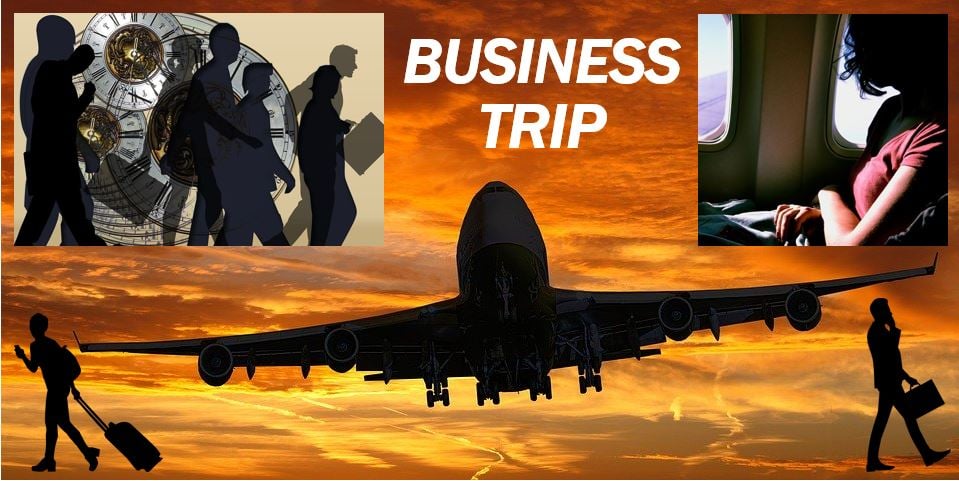
Collins Dictionary has the following definition of the term :
“A journey made somewhere and back again for business purposes in one’s working capacity.”
Business trip vs. business travel
The two terms refer to the same action or activity. However, their uses are not the same.
Business travel
Business travel refers to traveling on behalf of your employer generally. Although it is a singular term, i.e., business travel and not business travels , it refers to all trips for work purposes. It is a general term .
I might say, for example: “Business travel is becoming a significant part of our airline’s income.” In this case, we are talking in general.
I cannot use business travel for just one journey. For example, I cannot say: “I’m sorry, Jane is away. She is on a business travel.” I would have to say: “I’m sorry … She’s on a business trip.”
Business trip
This term refers to just one journey. We need to use the plural if we are talking in general.
For example, if I wanted to talk about my airline’s revenue, I would say: “Business trip s are becoming a significant part of our airline’s income.” I would not be able to use the singular form.
Reasons for business travel
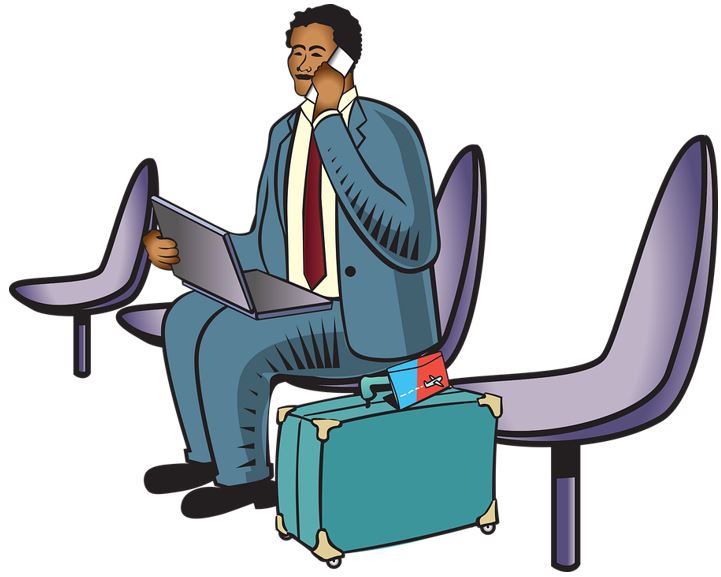
In all the examples below, your employer is paying for travel, accommodation, etc.
- Meeting with customers or clients.
- Visiting suppliers.
- Attending a conference.
- Attending a course.
- Identify new markets, trends, and consumer traits elsewhere.
- Visiting somewhere to check the progress of a project.
- Visiting a prospect. A prospect is a company or person that you think could turn into a paying customer.
- Apologizing to a customer.
- Your purpose is PR or public relations , such as taking part in a press conference.
- The ROI from the trip is more than its cost. ROI stands for return on investment .
- Your employer sends you somewhere to fix, for example, equipment.
- Networking. There are many people you can meet away from work with whom you or your company could do business.
- Face-to-face meetings are usually more effective than using email, VoIP, texting, etc. Sometimes they are necessary.
Business travelers typically claim their expenses by filling a report , in which they list how much they spent on local public transport, meals, taxis, phone calls, etc.
Negatives and positives of business travel
Business trips may be extremely rewarding experiences. However, for some people, especially if they have families, there is a price to pay.
Regular business travelers frequently feel loney. Some of them may show signs of deteriorating mental health and even depression. According to Adam Perotta in a Business travel News article in December 2019, over 20% of business travelers said they experienced negative mental health effects.
Regarding the survey, Perotta wrote :
“22 percent of respondents reported that business travel had a “very” or “somewhat” negative impact on their mental health. Twenty-one percent indicated that even thinking about an upcoming work trip caused stress. Factors causing that angst include the toll travel takes on physical health, sleep schedules, personal relationships, personal finances and productivity.”
Traveling regularly on behalf of your company may mean missing major family events, which can contribute significantly to relationship problems.
Jet lag can play havoc with our body clock, productivity, and mental and physical health. Eating small meals before and during your flight, refraining from consuming alcoholic drinks, drinking plenty of water, and getting plenty of rest beforehand can help reduce the negative effects of jet lag.
In a Small Business Trends article, Samson Haileysus wrote that the vast majority of small company owners enjoyed their work-related trips. Approximately fifty-five percent of small business owners travel for work purposes at least once each month. Sixty percent of them spend three nights away from home during each trip.
Haileysus added:
“Surprisingly enough almost all (88%) small business owners who travel for business do enjoy traveling. In fact, just under three in four (72%) say they wish they traveled for business more often.”
Corporate travel is a huge market
Business travel is worth hundreds of billions of dollars each year globally. The biggest spenders on business trips are the United States and China.
In the United States, there are over 405 million business trips annually (long distance). For every working day, approximately 1.1 million Americans are traveling for work purposes.
The world’s most popular destination is New York City, while Shanghai is the fastest growing. Trondent Development Corp. made the following comment regarding the importance of business travel for airlines:
“Business passengers represent 75 percent of an airline’s profits despite only being 12% of their total passengers. But the money is well spent: every $1.00 spent on business travel creates $15 of profit for increased sales.”
Share this:
- Renewable Energy
- Artificial Intelligence
- 3D Printing
- Financial Glossary
Browser not supported
This probably isn't the experience you were expecting. Internet Explorer isn't supported on Uber.com. Try switching to a different browser to view our site.
Business traveler dos and don'ts
Traveling for work can be many things: exhilarating and productive, or exhausting and stressful. Sometimes it’s all of those rolled into one. If you’re looking for more of the former and less of the latter, some universal tips will help you when you’re on the road for business.
Here are our top 8.
Do familiarize yourself with company travel policies
There’s nothing worse than finding out that a ride to your hotel or a restaurant meal is going to cost you your own hard-earned money because it was noncompliant. Luckily, if you educate yourself before booking travel and starting your journey, it can help you get what you need and stay within policy.
Did you know? With Uber for Business , traveling employees gain access to the business hub. This lets those who are linked to their company’s account see all their sponsored travel benefits in the Uber and Uber Eats apps. View workplace programs, like business travel or meals, manage business profiles, change payment methods, and contact Support all in one place.
Do pack lightly and efficiently
Picture this: you arrive at your destination after a long travel day. You head to baggage claim, wait patiently as the suitcases drop onto the carousel, and daydream about dinner. Soon it becomes clear that your bag is nowhere to be found, and now you’re stuck without your clothes the night before a big presentation. Avoid this scenario by packing strategically and using only a carry-on. If you must check a bag, make sure you bring essentials with you on the plane.
Do plan some bleisure activities
Business travel doesn’t have to be all work and no play. If your company and your personal schedule allow for it, build in an extra day or 2 to explore your destination. Take in some sights, try some local cuisine, and make some memories that’ll last well beyond your work trip.
Do take advantage of travel perks
The savviest road warriors know how to get the most out of a business trip. Many companies have partnerships with major hotel brands or airlines, meaning business travelers can earn perks that they can put toward future personal trips. Don’t let those points or miles go to waste.
Did you know? Traveling employees can use Uber for Business to make work trips work for them. By connecting Uber and Marriott Bonvoy TM accounts, they can earn points redeemable for personal travel when they request eligible rides and order eligible meals on the road.
Don't book at the last minute
When it comes to business travel, good things don’t come to those who wait. Securing airline tickets, hotel rooms, or conference passes at the last minute can mean fewer options, less flexibility, and higher costs. Booking your travel and accommodations as early as possible can save you a potential headache and your company valuable dollars.
Did you know? With Uber Reserve, travelers can request a ride up to 90 days in advance. They can also choose from a variety of ride options, get up to 15 minutes of wait time, and cancel up to one hour before the ride at no charge. 1 Don’t get stranded without transportation, and never be late to that important meeting again.
Don't neglect health and wellness
Being on a work trip means being out of your routine, which can negatively affect sleep, diet, and fitness. It’s easy to get caught up in the hecticness and excitement, but don’t sacrifice your physical and mental well-being. Prioritizing sleep, eating nourishing meals, and getting consistent exercise are great ways to feel good not only while you’re on the road but also when you return.
Don't forgo local customs
Part of a successful trip, whether it’s for fun or for work, means operating respectfully within local culture. This is especially important for international travel, in which customs may be quite different from those of your home. Avoid faux pas by brushing up on your destination—like knowing the standards for dress, greetings, tipping, taboo topics, and cuisine—before heading out.
Don't forget to reconcile post-trip expenses
Work trips aren’t just about what happens during the booking process or at the destination. An important final step is reporting on business expenses. Make sure you’re keeping track of ground transportation, meals on the road, or other eligible expenses, and submit them within your company’s allotted deadline.
Did you know? Uber for Business expense integrations streamline the expense process for employees. Travelers’ ride and meal receipts will automatically flow directly into the company’s expense provider dashboard, saving time and cutting down on human error.
1 Wait time varies based on the vehicle option you select. Go to Uber Reserve Terms for details.
The platform
Get the best of Uber, for business—including improved cost controls and compliance.
Expense integrations
Save time with automatic expense reconciliation
Sustainability
Get clear climate metrics such as total low-emission trips and average CO₂ per mile.
We make your health and safety top priorities.
Employee benefits
All the advantages of Uber your employees already love, for business.
The dashboard
It all starts here - manage travel and meal programs with easy to set cost controls and more.
Business profiles
Help your employees connect with your company’s Uber for Business account.
Delegate booking
Enable executive assistants to arrange work transportation for executives with a delegate profile.
Request rides and deliveries on behalf of customers.
Purchase Uber gift cards in bulk for simplified giving.
Uber Health
Reimagine the way patients access care.
Offer business-class perks with an Uber One company membership.
Cover the cost of rides and meals, and pay only when used.
By use case
Holiday gifting
Celebrate the holidays with vouchers and gift cards
Business travel
Oversee your travel program with the flexibility and reporting you need.
Employee commute
Set up a stress-free commute program for your employees.
Event transport
Get attendees to and from your next event.
Employee shuttles
Offer group transportation for daily commutes, cross-campus dashes, and more.
Courtesy rides
Request rides for customers and guests with ease, even if they don't have the Uber app.
Meal programs
One platform gives you the control to provide meals in multiple ways.
Recruit, retain, and reward your employees with Uber perks they want.
Corporate gifting
Exec management
Request rides and meals for leaders.
By industry
Elevate customer service with on-demand rides.
Improve health outcomes and the patient experience by enabling better access to care.
Hospitality
Delight your guests with rides and meals.
Financial services
Keep your employees moving and your clients happy.
Offer rides and meals to employees and constituents.
Customer support
Customer service
Get in touch with us or quickly find answers to top concerns.
Help Center
For admins and coordinators to browse tips and topics.
Product updates
Check out recent updates we’ve made across our platform.
Learning hub
Explore product education, case studies, and industry insights.
Customer stories
See how innovative companies work with us.
Get the latest news from Uber for Business.
- Contact sales
An official website of the United States Government
- Kreyòl ayisyen
- Search Toggle search Search Include Historical Content - Any - No Include Historical Content - Any - No Search
- Menu Toggle menu
- INFORMATION FOR…
- Individuals
- Business & Self Employed
- Charities and Nonprofits
- International Taxpayers
- Federal State and Local Governments
- Indian Tribal Governments
- Tax Exempt Bonds
- FILING FOR INDIVIDUALS
- How to File
- When to File
- Where to File
- Update Your Information
- Get Your Tax Record
- Apply for an Employer ID Number (EIN)
- Check Your Amended Return Status
- Get an Identity Protection PIN (IP PIN)
- File Your Taxes for Free
- Bank Account (Direct Pay)
- Payment Plan (Installment Agreement)
- Electronic Federal Tax Payment System (EFTPS)
- Your Online Account
- Tax Withholding Estimator
- Estimated Taxes
- Where's My Refund
- What to Expect
- Direct Deposit
- Reduced Refunds
- Amend Return
Credits & Deductions
- INFORMATION FOR...
- Businesses & Self-Employed
- Earned Income Credit (EITC)
- Child Tax Credit
- Clean Energy and Vehicle Credits
- Standard Deduction
- Retirement Plans
Forms & Instructions
- POPULAR FORMS & INSTRUCTIONS
- Form 1040 Instructions
- Form 4506-T
- POPULAR FOR TAX PROS
- Form 1040-X
- Circular 230
Topic no. 511, Business travel expenses
More in help.
- Interactive Tax Assistant
- Report Phishing
- Fraud/Scams
- Notices and Letters
- Frequently Asked Questions
- Accessibility
- Contact Your Local IRS Office
- Contact an International IRS Office
- Other Languages
Travel expenses are the ordinary and necessary expenses of traveling away from home for your business, profession, or job. You can't deduct expenses that are lavish or extravagant, or that are for personal purposes.
You're traveling away from home if your duties require you to be away from the general area of your tax home for a period substantially longer than an ordinary day's work, and you need to get sleep or rest to meet the demands of your work while away.
Generally, your tax home is the entire city or general area where your main place of business or work is located, regardless of where you maintain your family home. For example, you live with your family in Chicago but work in Milwaukee where you stay in a hotel and eat in restaurants. You return to Chicago every weekend. You may not deduct any of your travel, meals or lodging in Milwaukee because that's your tax home. Your travel on weekends to your family home in Chicago isn't for your work, so these expenses are also not deductible. If you regularly work in more than one place, your tax home is the general area where your main place of business or work is located.
In determining your main place of business, take into account the length of time you normally need to spend at each location for business purposes, the degree of business activity in each area, and the relative significance of the financial return from each area. However, the most important consideration is the length of time you spend at each location.
You can deduct travel expenses paid or incurred in connection with a temporary work assignment away from home. However, you can't deduct travel expenses paid in connection with an indefinite work assignment. Any work assignment in excess of one year is considered indefinite. Also, you may not deduct travel expenses at a work location if you realistically expect that you'll work there for more than one year, whether or not you actually work there that long. If you realistically expect to work at a temporary location for one year or less, and the expectation changes so that at some point you realistically expect to work there for more than one year, travel expenses become nondeductible when your expectation changes.
Travel expenses for conventions are deductible if you can show that your attendance benefits your trade or business. Special rules apply to conventions held outside the North American area.
Deductible travel expenses while away from home include, but aren't limited to, the costs of:
- Travel by airplane, train, bus or car between your home and your business destination. (If you're provided with a ticket or you're riding free as a result of a frequent traveler or similar program, your cost is zero.)
- The airport or train station and your hotel,
- The hotel and the work location of your customers or clients, your business meeting place, or your temporary work location.
- Shipping of baggage, and sample or display material between your regular and temporary work locations.
- Using your car while at your business destination. You can deduct actual expenses or the standard mileage rate, as well as business-related tolls and parking fees. If you rent a car, you can deduct only the business-use portion for the expenses.
- Lodging and non-entertainment-related meals.
- Dry cleaning and laundry.
- Business calls while on your business trip. (This includes business communications by fax machine or other communication devices.)
- Tips you pay for services related to any of these expenses.
- Other similar ordinary and necessary expenses related to your business travel. (These expenses might include transportation to and from a business meal, public stenographer's fees, computer rental fees, and operating and maintaining a house trailer.)
Instead of keeping records of your meal expenses and deducting the actual cost, you can generally use a standard meal allowance, which varies depending on where you travel. The deduction for business meals is generally limited to 50% of the unreimbursed cost.
If you're self-employed, you can deduct travel expenses on Schedule C (Form 1040), Profit or Loss From Business (Sole Proprietorship) , or if you're a farmer, on Schedule F (Form 1040), Profit or Loss From Farming .
If you're a member of the National Guard or military reserve, you may be able to claim a deduction for unreimbursed travel expenses paid in connection with the performance of services as a reservist that reduces your adjusted gross income. This travel must be overnight and more than 100 miles from your home. Expenses must be ordinary and necessary. This deduction is limited to the regular federal per diem rate (for lodging, meals, and incidental expenses) and the standard mileage rate (for car expenses) plus any parking fees, ferry fees, and tolls. Claim these expenses on Form 2106, Employee Business Expenses and report them on Form 1040 , Form 1040-SR , or Form 1040-NR as an adjustment to income.
Good records are essential. Refer to Topic no. 305 for information on recordkeeping. For more information on these and other travel expenses, refer to Publication 463, Travel, Entertainment, Gift, and Car Expenses .
- Homes for sale
- Foreclosures homes
- New construction for sale
- All new construction
- New home construction
- Housing market
- Recently sold homes
- Property records
- Home buying checklist
- Home buyers reveal: 'What I wish I had known before buying my first home'
- First-time home buyer resource center
- More home buying insights
- Success stories
- Seller's marketplace
- See what your home is worth
- Learn how to sell your home
- How to select an agent
- Compare agents & pick the right one
- Selling your home? Don't neglect these 6 maintenance tasks - or else
- More home selling insights
- Apartments for rent
- Manage rentals
- List your rentals
- Screen tenants
- Create a lease
- Collect rent online
- Renters resource center
- Should I rent or buy?
- Debunked! 8 myths about renting you should stop believing immediately
- Rental report
- More renting insights
- Get pre-approved
- Mortgage rates
- Home equity financing rates
- Refinance rates
- Finance advice
- For veterans
Mortgage calculator
Refinance calculator.
- How much house can I afford
- Rent vs. buy
- 6 ways home buyers mess up getting a mortgage
- Mortgage guide
- Learn about home insurance
- More finance insights
- Search for real estate agent
- 6 reasons you should never buy or sell a home without an agent
- Difference between agent, broker & Realtor ®
- Listing vs. buyer agent
- How to find a REALTOR ®
- Real estate agents reveal the toughest home buyers they've ever met
- More news around REALTORS ®
- The latest news
- Housing trends
- Real estate news
- Celebrity real estate
- Unique homes
- Corporate blog
- Home improvement
- 2024 housing market predictions
- 2023 hottest zip codes
- Complete guide on how to sell your home
- Veterans home buyer guide
- USDA home loan guide
- Home insurance guide
- Real estate videos
- Housing resources
Mortgage Rates
Mortgage tools, affordability calculator, rent or buy calculator, veteran home loan center, mortgage tips.
5 Most Common Questions About Mortgages—Answered
Learning the Lingo: Mortgages Explained, From ARMs to Points
Expert Home-Buying Advice for Our Nation's Veterans
How to Buy a Home With Bad Credit (Yes, You Can)
Mortgage Rates by State
- Connecticut
- District of Columbia
- Massachusetts
- Mississippi
- New Hampshire
- North Carolina
- North Dakota
- Pennsylvania
- Rhode Island
- South Carolina
- South Dakota
- West Virginia
Mortgage Rates by Loan Type
- 30 year fixed
- 20 year fixed
- 15 year fixed
Language selection
- Français fr
WxT Search form
Draft market study notice: competition in canada’s airline industry.
The Competition Bureau is calling for comments on this draft market study notice. Comments can be submitted through our feedback form or by emailing [email protected] until June 17, 2024.
After considering the comments received, the Bureau will publish final terms of reference in a market study notice. The final terms of reference will include further details about providing submissions in response to the final market study scope.
On this page:
Notice of study, purpose of the study, public interest reasons for the study, scope of the study, outcomes of the study, process and study milestones, get involved, confidentiality.
- The Competition Bureau believes that it is in the public interest to conduct a market study into the state of competition in the airline industry, in particular with respect to domestic air passenger services. Footnote 1
- As an initial step, we are calling for comments on the terms of reference in this draft market study notice. Footnote 2 Comments can be submitted through our feedback form or by emailing [email protected] until June 17, 2024.
- Market studies allow the Bureau to assess a sector from a competition perspective to identify relevant laws, regulations, policies or other factors that may affect competition. Through market studies, the Bureau makes findings and provides evidence-based recommendations on ways to enhance competition in a particular sector.
Terms of reference
- The purpose of this study is to examine the state of competition in the airline industry and how governments across Canada can improve competition for the benefit of domestic air passengers as well as the workers and entrepreneurs who enable these services.
- In undertaking this study, the Bureau is not examining any specific allegations of wrongdoing. However, should the Bureau uncover any evidence during the study that the Competition Act has been contravened, it will investigate and take appropriate action.
- The airline industry is important to Canadians and the Canadian economy. It provides an essential mode of transportation for both business and leisure purposes. In 2022, the industry served 72 million passengers on domestic services. Footnote 3 Since the Canadian population is spread out over vast distances, other modes of transportation are often not feasible replacements for air travel. And for some remote areas, air transportation services may be the only available option. This is why Canadians need affordable and accessible air transportation.
- The industry has faced challenges associated with the COVID-19 pandemic, including labour shortages. Footnote 4 However, there are also reasons to ask whether competition could work better in this market. The domestic air travel market is concentrated with only two major airlines, Air Canada and WestJet, who together are estimated to account for close to 95 per cent of industry revenue. Footnote 5 There are also signs that domestic airfares in Canada may be relatively high. Footnote 6 Additionally, average airfares remain above pre-pandemic levels. Footnote 7
- Recent travel experience has included congestion, flight delays, cancellations and baggage issues during busy travel seasons in 2022. Footnote 8 In addition, Canadians are filing an increasing number of complaints with the Canadian Transportation Agency about air travel services in recent years. Footnote 9
- Commentators have noted that WestJet and Air Canada have scaled back their operations into Western and Eastern Canada, respectively, leading to increased fares for flights in those regions. Conversely, new and growing airlines serve busy domestic routes and winter sun destinations, leading to reduced fares on those routes. Footnote 10
- Despite the promising entry and expansion by some airlines, the Canadian market appears challenging for many carriers. This includes low-cost and ultra low-cost carriers, which seem to face more difficulties in Canada compared to other countries. For example, Lynx Air recently ceased operations. Footnote 11
- These initial market observations suggest that a study of competition in the airline industry will be informative for the Bureau and policymakers.
- In addition to recent events, there is a long history of competition enforcement in the sector by the Bureau and other global competition agencies. Footnote 12 The Bureau has previously called for more competition in the airline sector, including advocating for changes to the foreign ownership rules, and allowing foreign carriers to operate within Canada’s domestic borders, also known as cabotage rules. Footnote 13 Since then, the Government of Canada increased international ownership limits from 25 to 49 per cent of voting interests for Canadian air carriers. Footnote 14 This history further underscores the importance of studying the state of competition in the airline industry.
- Greater competition can complement other policies aimed at improving air travel. The Government of Canada is taking steps to better protect air passengers, enhance accountability and accessibility of airports, and support investments in airport facilities. Footnote 15 This includes measures aimed at fees for optional airline services such as seat selection and baggage. Insights from our study may help policymakers better achieve their goals.
- Supporting competition in this industry will help reduce prices for consumers, improve quality of service and working conditions, increase productivity, and boost innovation.
- the state of competition in Canada’s airline industry;
- barriers to entry and expansion; and
- impediments to informed customer choice.
- What is the state of competition in the Canadian airline industry, how can we achieve greater airline competition, and what are the benefits for Canadians?
- How is the industry evolving in terms of consumer preferences and airline operations, e.g. demand for direct flights, demand for domestic vs international flights, passengers’ willingness to use secondary or more distant airports, and business models?
- What can we learn from recent market events, including the entry of ultra low-cost carriers, Porter Airlines’ expansion, and the reduction in regional service by WestJet and Air Canada?
- What are the major barriers to entry and expansion and how can policymakers lower them to stimulate competition?
- How can airport operations and other air travel services support air carrier entry and growth?
- How can government procurement or other initiatives support airline competition in remote regions, including the North?
- Should policymakers open domestic routes to more international competition? If so, how?
- What difficulties do consumers face when shopping for airfares?
- Do consumers have the information they need to make informed purchasing decisions, particularly when it comes to service quality and pricing of ancillary services, such as seat selection and checked baggage?
- How can policymakers help consumers benefit more from existing competitive options?
- Issues pertaining to air cargo services or international air passenger services, except to the extent that they relate to competition in domestic air passenger services.
- Issues pertaining to airport governance, except to the extent that they relate to competition in domestic air passenger services.
- Issues pertaining to specific passenger complaints under the Air Passenger Protection Regulations and recently held consultation on strengthening these regulations. Passenger complaints should be addressed through the Canadian Transportation Agency’s air travel complaints resolution process . More information on the recent consultation is available through the Canadian Transportation Agency's consultation webpage .
- Specific complaints that may raise concerns under the enforcement provisions of the Competition Act . These complaints should be directed to the relevant enforcement directorate or the Bureau’s Complaint Form or Information Centre .
- As the study progresses, the Bureau may advise stakeholders of any updates through the market study webpage .
- The Bureau will publish the results of the study in a public report, which may include recommendations to relevant government authorities on steps they can take to improve competition for the benefit of passengers, workers, and entrepreneurs.
- Increase its knowledge and understanding of the competitive dynamics within the airline sector to inform its future work.
- Provide informed advice regarding steps that policymakers could take to further support competition in the airline sector.
- Over the course of the study, the Bureau intends to engage with a wide range of stakeholders including industry players and government decision-makers, and will gather and analyze information from various other sources. The Bureau welcomes submissions from interested stakeholders, as detailed below under ‘ Get Involved ’. The Bureau may also consult with industry, economic, and other experts and consider the experience of other jurisdictions. While the Bureau continues to welcome stakeholders providing relevant information voluntarily, we may use a new legislative tool to ask the Courts to order companies to provide relevant information to the Bureau.
- June/July 2024: Publish final terms of reference for market study
- August 2024: Deadline for written submissions from the public
- Summer/fall 2024: Stakeholder engagement and research
- Winter/spring 2025: Analysis of potential solutions and recommendations
- June/July 2025: Publish final report
- The Bureau may modify the schedule as needed. Should there be any material change to this schedule, the Bureau will update the notice and advise stakeholders of the changes through the market study webpage . Footnote 16
- As an initial step, we are calling for comments on the terms of reference in this draft market study notice. Comments can be submitted through our feedback form or by emailing [email protected] until June 17, 2024. All comments will be made public and posted on the Bureau’s website in the language provided unless it is specifically requested that they be kept confidential.
- After considering the comments received, the Bureau will publish final terms of reference. The final terms of reference will include further details about providing submissions in response to the final market study scope.
- The Bureau conducts its advocacy and enforcement activities under the authority of the Competition Act . Section 29 of the Competition Act protects information obtained by or provided to the Bureau, including the identities of the persons who provided the information, and any information that could reveal their identities. However, when information has been made public or where persons providing information authorize its communication to other parties, subsection 29(2) permits the disclosure of such information.
- Additionally, subsection 29(1) provides exceptions for the communication of information to a Canadian law enforcement agency or for the purposes of the administration or enforcement of the Competition Act .
- The Bureau encourages stakeholders to consult its Information Bulletin on the Communication of Confidential Information under the Competition Act or direct specific questions to the market study team by emailing [email protected] .
- Any reports or other products published in relation to the study may contain analysis that is based on confidential or commercially sensitive information. We encourage stakeholders to identify any confidential or commercially sensitive information in their submissions or discussions with Bureau officials. The Bureau will endeavour to anonymize sensitive information.
- The Bureau will conduct its analysis in confidence. For greater clarity, the Bureau will send an advance copy of relevant portions of the report to every person who supplied information in response to a section 11 production order so that they may, within three working days, share any concerns regarding factual inaccuracies or confidential information that should not be disclosed in the final report.
Annex A: Previous Bureau advocacy in the airline sector
Submission to the canada transportation act review panel: rail, air and marine transportation.
In this 2015 submission on the Canadian Transportation Act (CTA), the Bureau reiterated its position that higher foreign ownership levels would provide Canadian carriers with greater access to international capital, which in turn, may lower the barrier to entry that results from limited accessibility to capital. In 2015, the Bureau made recommendations to the Government of Canada including:
- negotiating unrestricted cabotage rights on a reciprocal basis;
- creating a new class of licensee under the CTA to allow one hundred percent foreign ownership of carriers that can fly only within Canada;
- making legislative changes to the CTA to allow modified sixth freedoms, either on a unilateral or reciprocal basis;
- permitting up to forty nine percent of the voting shares of a Canadian carrier to be held by foreigners; and
- seeking the elimination of all foreign ownership restrictions with our trading partners, either on a bilateral or multilateral basis.
The Bureau also recommended that the Government of Canada, in examining issues of airport governance, emphasize the importance of equitable and non-discriminatory allocation of airport fees among carriers, and access to slots, counters and services for all carriers in accordance with best international norms.

IMAGES
VIDEO
COMMENTS
Business travel can take many forms, depending on the purpose of the trip and the activities involved. Here are some of the most common types of business travel: Event and Conference Travel: Companies often send employees to corporate events and conferences where attendees can learn and network with peers, potential clients, and service providers.
Vikki Velasquez. Corporate business travel involves the movement of individuals representing their organizations for work-related reasons. Whether it's attending client meetings, industry ...
For travel purpose, if in-person interactions remain critical for a company, then the more resilient such business trips are. Some assumptions were made on how likely it was that some forms of corporate travel would recover rather than be substituted by videoconference technology. ... An April Global Business Travel Association (GBTA) member ...
Corporate travel fosters idea sharing and economic growth. According to the. London School of Economics. , the more a team operates virtually, the less effective it will be. One of the primary purposes of business travel is to share knowledge and ideas. Research has demonstrated that disseminating knowledge between people can be a slow process.
Employees should clearly state the business travel purpose that directly or indirectly influences business volume and profitability. Clarity of the business travel purpose is crucial for tax auditing. One should plan the purpose of a business trip to help derive a clear conclusion about its fulfillment. Submitting the feedback report is ...
Finding the Purpose of Business Travel. By Festive Road managing partner Caroline Strachan / December 07, 2021. Caroline Strachan. Recently I went on my first international business trip in two years. A transatlantic trip for five nights came with significant financial investment, carbon cost and personal compromise. Was it worth it?
Purpose Matters for Business Travel, Too. by. Claudio Fernández-Aráoz. November 11, 2015. Why do we travel? Some 60,000 years ago we humans began to journey out of the ecological niche we shared ...
A step-by-step business trip guide. Research from Statista shows that business travel contributes almost $1.3 trillion to the global economy in a single year, making it one of the world's largest economic industries. Further research highlights only upward trends in the amount that is spent on business travel as well.
Bleisure travel. With the rise in remote working, the concept of bleisure travel is becoming more and more well-known. If someone is required to travel for business, it is now common practice to add some time onto the trip for some personal time. The person travelling may wish to use some of their allocated leave to enjoy some of the sights and ...
Business travel. Business class seats (pictured aboard an Emirates aircraft) in aircraft usually provide more space and facilities than the standard class. Business travel is travel undertaken for work or business purposes, as opposed to other types of travel, such as for leisure purposes or regularly commuting between one's home and workplace.
The simplest business travel definition is travel that is undertaken for business purposes. Business travel does not include daily commutes or trips for leisure purposes. Usually, business travel implies work that requires being away from home for at least a day. Each individual journey is considered a "business trip.".
There are a number of reasons to travel for business: Closing Deals: It's common to close large and important deals in-person. Exploring New Markets: Companies looking to expand into new markets will visit them to explore the conditions on the ground and to conduct research. Internal Meetings: In an age of remote work, companies may ask ...
A final type of business travel is bleisure travel ("business travel" + "leisure travel"). Bleisure travel is very popular: research from Expedia Media Solutions. shows that more than 60% of business trips included a leisure component. Any of the different types of business travel mentioned above could be turned into a bleisure trip.
There are many types of business travel, from a working lunch with a new client to a week-long overseas conference. Explore the value of business travel and the goals it helps to achieve. Five types of business travel. Business travel covers all trips made for work purposes. And all types of business travel have a purpose. Client meetings and ...
The purposeful travel model changes the focus and aligns the travel program strategically to core business objectives. It focuses on both the 'how' and the 'why' of business travel and how it can make a positive impact on your business. For example, the travel manager of a pharmaceutical company whose purpose is to 'make the world a ...
If I say: "John is on a business trip," we imagine he will be away for more than one day. Wikipedia.org has the following definition of the term: "Business travel is travel undertaken for work or business purposes, as opposed to other types of travel, such as for leisure purposes or regularly commuting between one's home and workplace.".
After a two-year pause, the world has reopened to business travel. In fact, business travel recovery is predicted to experience 38% year-over-year growth in 2022 to USD$1 trillion, and exceed pre-pandemic 2019 spend levels (USD$1.4 trillion) by 2024, a year earlier than previously forecast according to the Global Business Travel Association's (GBTA) 2021 business travel index (BTI).
A recent survey of Accor's corporate clients revealed that their business travel expenses had declined by 24 percent compared to 2019, a 10 percent improvement over 2022. Meanwhile, a Deloitte ...
Business travel. Business travel refers to traveling on behalf of your employer generally. Although it is a singular term, i.e., business travel and not business travels, it refers to all trips for work purposes. It is a general term. I might say, for example: "Business travel is becoming a significant part of our airline's income.".
Business travel is limited-duration travel of significant distance from your home for business purposes. This doesn't include your commute or extended work assignments away from home. Beyond that, any business activity that reasonably requires you to be at a remote place is a valid type of business travel. The following are illustrative examples.
View workplace programs, like business travel or meals, manage business profiles, change payment methods, and contact Support all in one place. Do pack lightly and efficiently . Picture this: you arrive at your destination after a long travel day. You head to baggage claim, wait patiently as the suitcases drop onto the carousel, and daydream ...
Business travel deductions are available when employees must travel away from their tax home or main place of work for business reasons. A taxpayer is traveling away from home if they are away for longer than an ordinary day's work and they need to sleep to meet the demands of their work while away. Travel expenses must be ordinary and ...
Topic no. 511, Business travel expenses. Travel expenses are the ordinary and necessary expenses of traveling away from home for your business, profession, or job. You can't deduct expenses that are lavish or extravagant, or that are for personal purposes. You're traveling away from home if your duties require you to be away from the general ...
Best Rewards-Earning Balance Transfer Business Card: U.S. Bank Triple Cash Rewards Visa® Business Card *. The U.S. Bank Triple Cash Rewards Visa® Business Card * is one of few business cards ...
Simply enter your home location, property value and loan amount to compare the best rates. For a more advanced search, you can filter your results by loan type for 30 year fixed, 15 year fixed and ...
The airline industry is important to Canadians and the Canadian economy. It provides an essential mode of transportation for both business and leisure purposes. In 2022, the industry served 72 million passengers on domestic services. Since the Canadian population is spread out over vast distances, other modes of transportation are often not feasible replacements for air travel.